The 1990s were a seismic shift in music history, a decade where genres collided and innovation thrived. Turn on the radio, and you were met with a vibrant tapestry of sounds – from the raw energy of grunge to the rhythmic pulse of gangsta rap, the infectious beats of dancehall to the resurgence of disco, the defiant spirit of riot grrrl punk to the sugary hooks of TRL pop. Electronica splintered into countless subgenres, while the Wu-Tang Clan and its affiliates seemed to drop a new classic with every passing week. No matter your taste, the Nineties offered an overwhelming abundance of music, a feast for any listener.
To capture the full scope of such a musically rich decade in a single list is an impossible task – you could easily compile hundreds of essential tracks from just one year, like the summer of ’94 alone. However, this curated selection of 50 Best Nineties Songs aims to encapsulate the most unforgettable moments from this era of musical explosion. From chart-topping hits to underground gems, cult favorites to dance floor anthems, guitar-driven rock to karaoke staples, these songs represent the diverse and dynamic spirit of the 1990s. So, get ready to dive back into a decade that redefined music. Here we are now. Entertain us.
Fuzzy, “Flashlight” (1994)
Emerging seemingly from nowhere and disappearing almost as quickly, Fuzzy, hailing from Boston, delivered a fleeting moment of brilliance with “Flashlight.” This quasi-grunge track, carried by a melancholic female vocalist, weaves a tale of introspection and uncertainty, using the metaphor of a flashlight to navigate through emotional darkness. Largely missed by the mainstream, it resonated with those who caught it during late-night MTV airplay on 120 Minutes. It begs the question: how many more undiscovered gems lie buried within forgotten major-label albums from the post-Nirvana gold rush, waiting for rediscovery? While few may reach the heights of “Flashlight,” the search for these hidden treasures remains a worthwhile pursuit.
Britney Spears, “Sometimes” (1999)
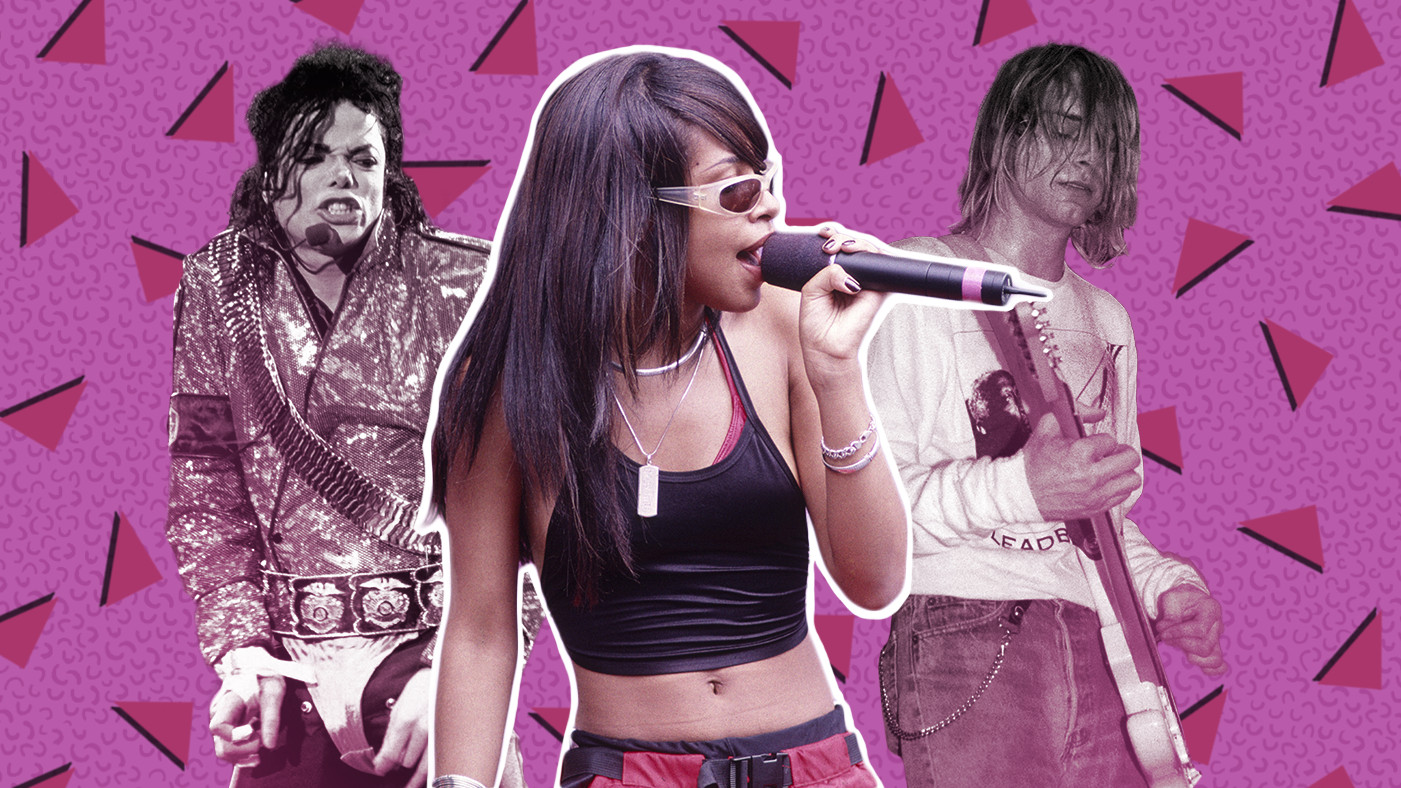 Britney Spears Sometimes best nineties songs
Britney Spears Sometimes best nineties songs
“Sometimes” marked Britney Spears’ second major hit, effectively her first comeback single and a pivotal moment in her career. After the explosive debut of “…Baby One More Time,” many wondered if she could maintain her momentum. “Sometimes,” a Total Request Live staple, silenced any doubts, cementing Britney’s staying power and establishing her as a blueprint for the modern pop star. This song signaled the dawn of a new era in pop music, ushering in the sounds of the next century.
The Offspring, “Self Esteem” (1994)
The Offspring, a hardcore punk band from Orange County, unexpectedly achieved multi-platinum success with “Self Esteem,” a catchy anthem exploring themes of masochism and relationship dynamics. The lyric “I may be dumb, but I’m not a dweeb” became an instantly relatable and iconic phrase of the decade, resonating with anyone who felt underestimated or misunderstood. Unless, of course, you identify as a “dumb dweeb,” in which case you might just be the subject of this enduringly popular track.
Selena, “Fotos y Recuerdos” (1994)
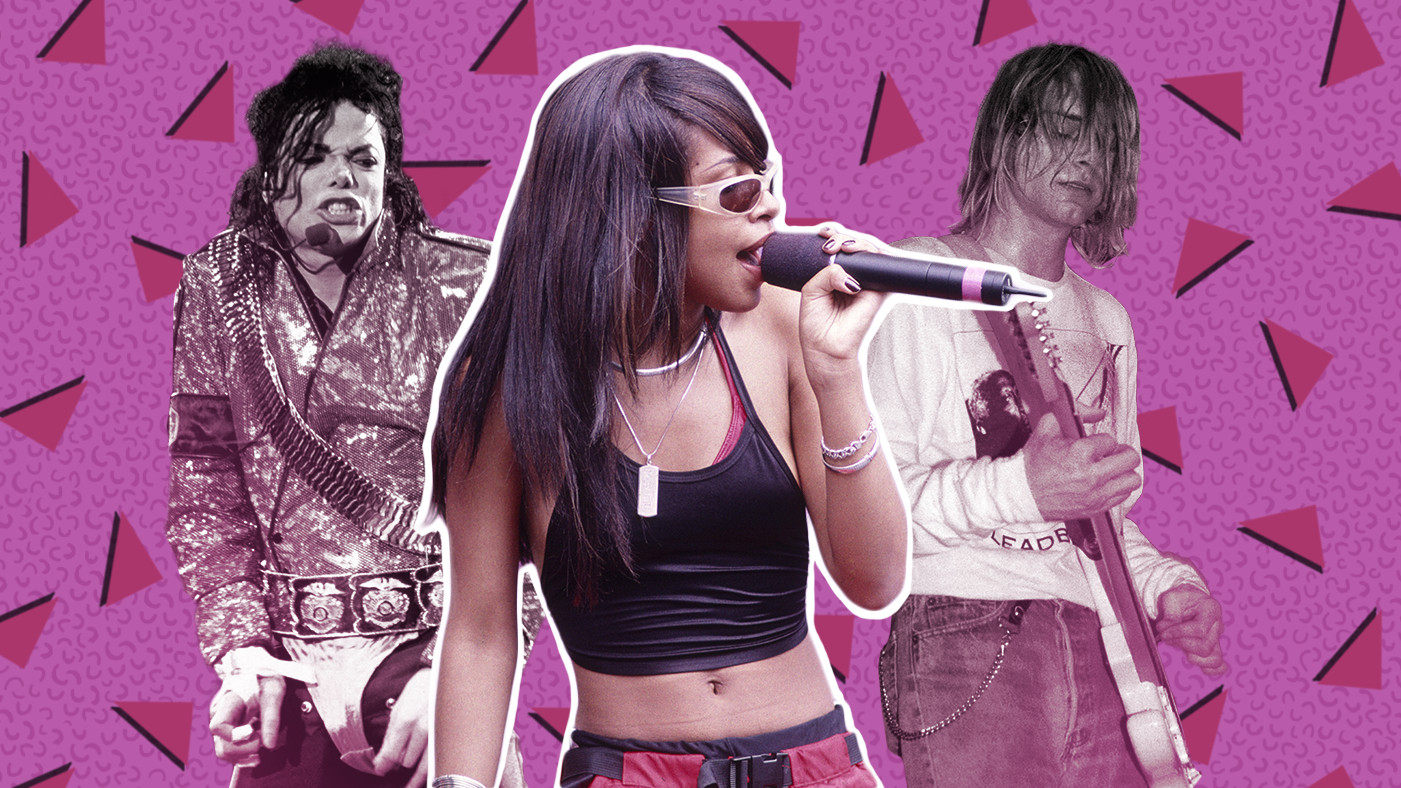 Selena Fotos y Recuerdos best nineties songs
Selena Fotos y Recuerdos best nineties songs
Selena, the undisputed queen of Tejano music, delivered a unique and memorable rendition of The Pretenders’ “Back on the Chain Gang” with “Fotos y Recuerdos.” Translated into Spanish, the song resonated deeply with Latin audiences, climbing into the Top Five of the Billboard Latin charts during the week of her tragic passing. This poignant reimagining showcased Selena’s versatility and solidified her status as a musical icon, even beyond the Tejano genre.
Silver Jews, “Random Rules” (1998)
“Random Rules” by Silver Jews paints a vivid picture of late-night introspection in a dimly lit honky-tonk. David Berman’s distinctive, world-weary vocals deliver fractured, barstool philosophical musings, creating an atmosphere of smoky contemplation and quiet melancholy. This track is the perfect soundtrack for closing time, a soundtrack for those moments of solitary reflection that often arrive in the early hours.
Lil Kim With Lil Cease, “Crush on You (Remix)” (1997)
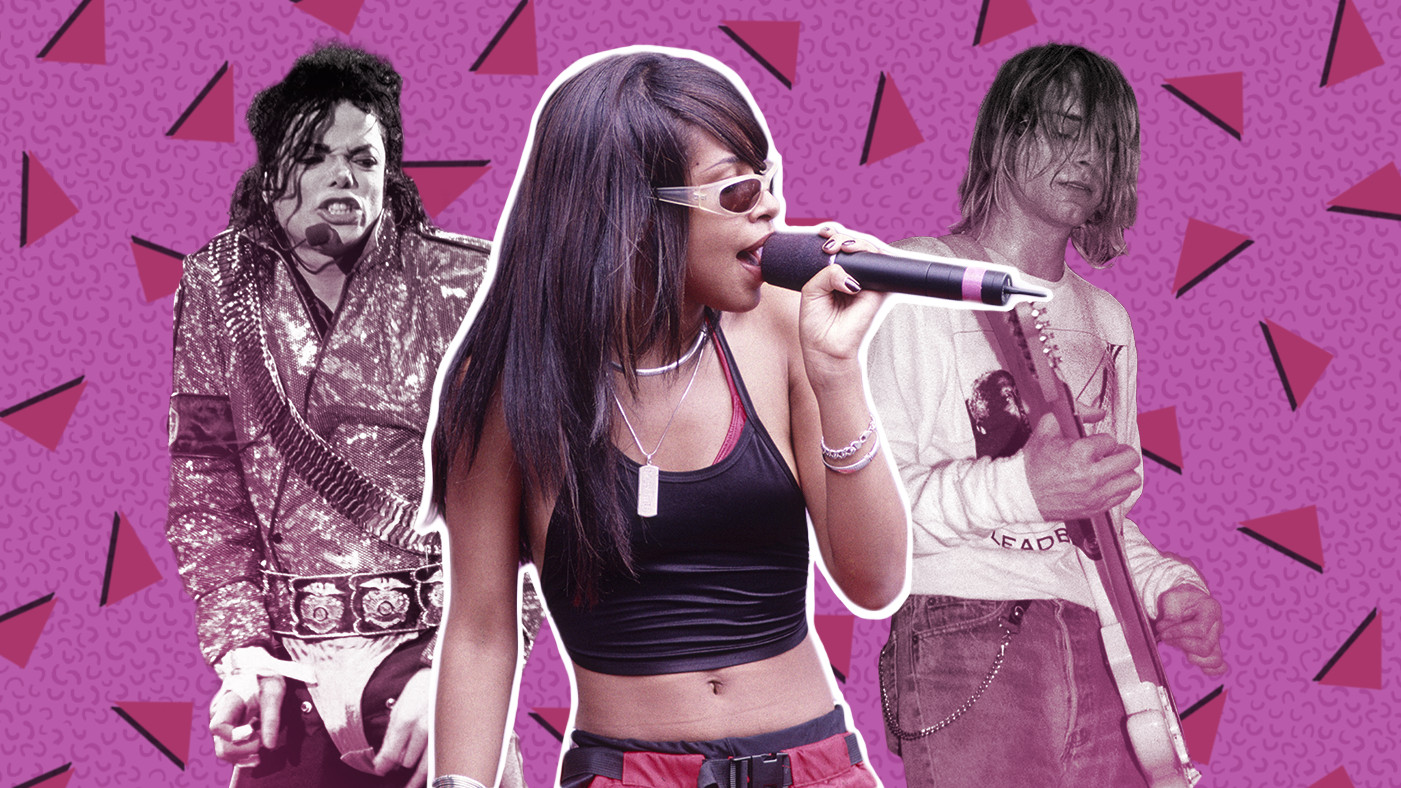 Lil Kim Crush on You Remix best nineties songs
Lil Kim Crush on You Remix best nineties songs
“Crush on You (Remix)” featuring Lil Cease is the quintessential Bad Boy Records anthem, embodying the label’s signature blend of streetwise swagger and polished production. Built upon a hauntingly beautiful synth loop, the track features Lil Cease confidently stepping into Biggie’s shadow, but it’s Lil’ Kim, the Queen Bee herself, who truly commands attention. Her unapologetic bravado and flamboyant style, showcased in her iconic wig and fur collection, are perfectly captured in the call-and-response: “Shall I proceed?” “Yes, indeed!”
Stereolab, “Cybele’s Reverie” (1996)
Stereolab, the European avant-garde collective, crafted album after album of intellectually stimulating and sonically rich music. “Cybele’s Reverie,” with its vintage keyboard textures and hypnotic rhythms, stands as a pinnacle of their discography. Their music, often described as “agitprop trance-prog,” blends political commentary with lush soundscapes, inviting listeners to question and dance simultaneously. “Voulez vous coucher avec le revolution?” – the question is implicitly asked and answered within their captivating sound.
Supergrass, “Alright” (1995)
 Supergrass Alright best nineties songs
Supergrass Alright best nineties songs
Choosing just one standout track from the Clueless soundtrack, a quintessential collection of 90s hits, is a near-impossible task. Much like trying to find profound meaning in a Pauly Shore movie, the soundtrack is packed with delightful, if sometimes lighthearted, gems. “Alright” by Supergrass perfectly captures the youthful exuberance and carefree spirit of the film and the decade itself, making it a strong contender among the soundtrack’s many highlights.
Ace of Base, “The Sign” (1994)
Ace of Base, the globally successful Swedish reggae-pop group, achieved massive international recognition with “The Sign.” This mystical hit, despite some slightly awkward English phrasing (like the unforgettable “Life is demanding/Without understanding”), became a worldwide phenomenon. The song’s quirky lyrics and infectious melody exemplify the unique brand of Swedish reggae-infused pop that surprisingly dominated the charts throughout the decade.
Sophie B. Hawkins, “Damn I Wish I Was Your Lover” (1992)
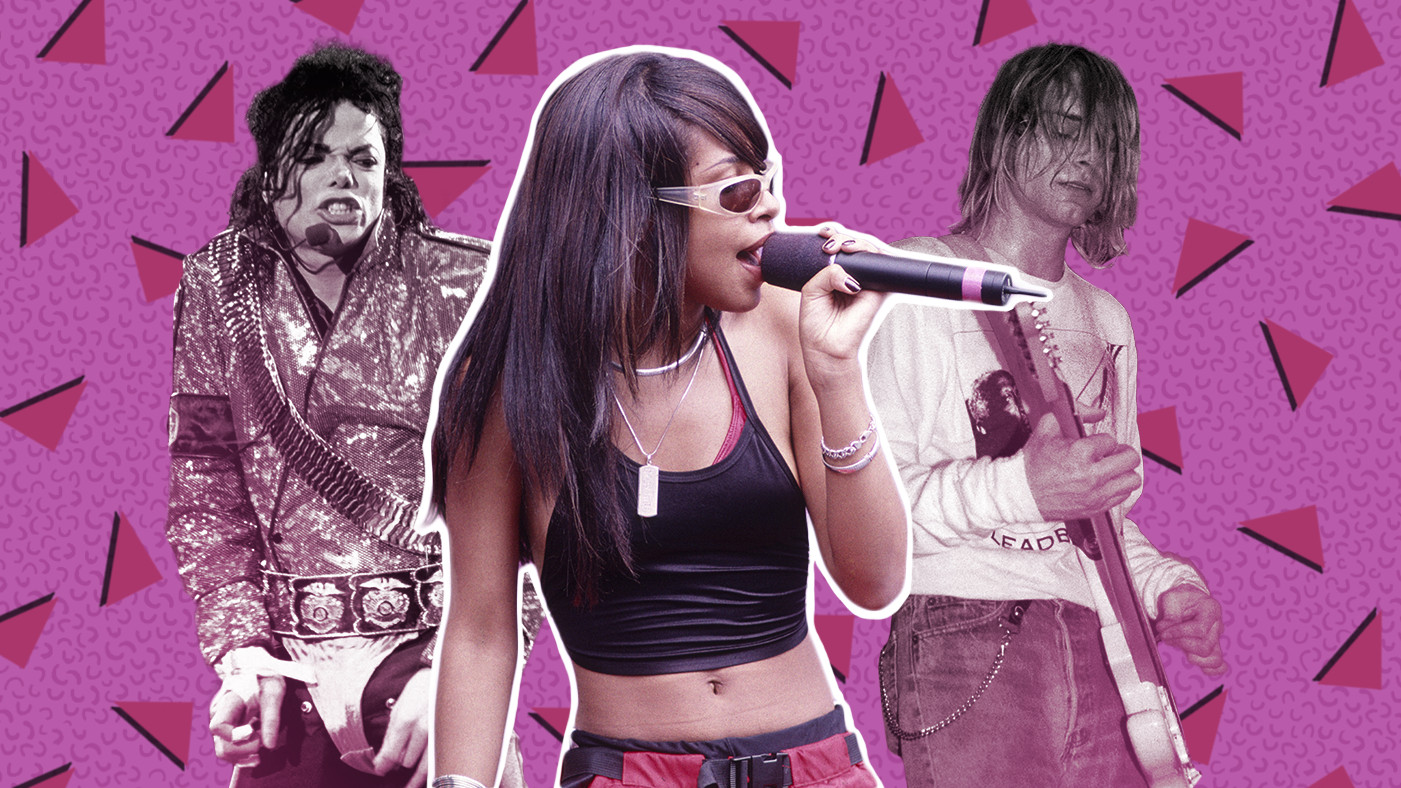 Sophie B Hawkins Damn I Wish I Was Your Lover best nineties songs
Sophie B Hawkins Damn I Wish I Was Your Lover best nineties songs
Sophie B. Hawkins, with her bohemian spirit and raw vocal power, delivered a passionate and vulnerable performance in “Damn I Wish I Was Your Lover.” This song of unrequited desire is elevated by Hawkins’ emotive wails, transforming the simple word “damn” into a powerful expression of longing and frustration. Her persona as a “boho sex priestess” perfectly complemented the song’s confessional and sensual nature.
Big Pun Feat. Joe, “Still Not a Player” (1998)
“Still Not a Player,” a collaboration between Bronx-born rapper Big Pun and R&B crooner Joe, is a smooth and seductive anthem representing Uptown cool. Set against a backdrop of lovers-rock piano chords, Big Pun woos “highly intelligent bachelorettes” with a multilingual party chant (“boricua, morena“) and confidently delivered, yet playful, come-ons. This track showcased Big Pun’s lyrical prowess and charisma, solidifying his place as a hip-hop heavyweight. R.I.P., Pun – he may have claimed to be “not a player,” but he undoubtedly conquered many hearts.
Sebadoh, “Brand New Love” (1992)
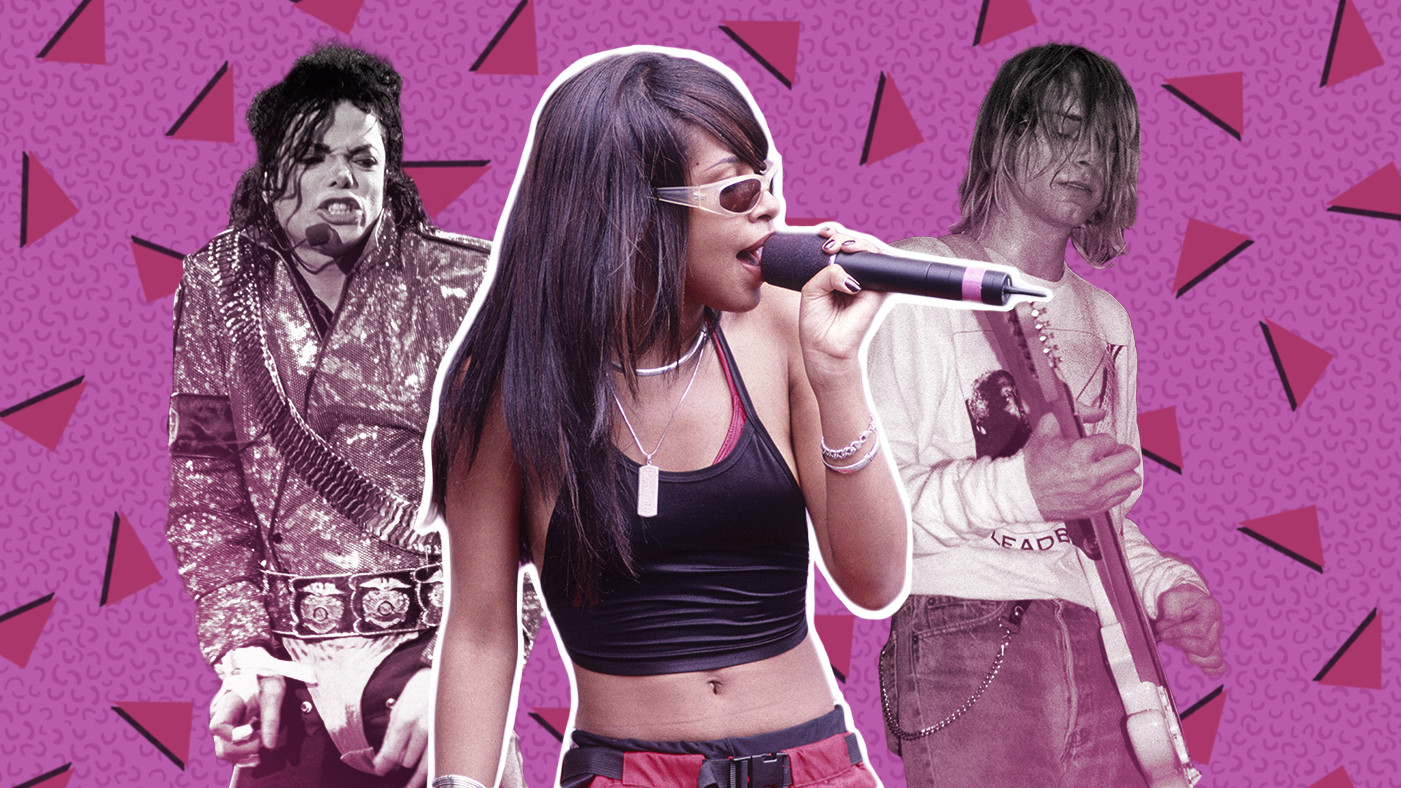 Sebadoh Brand New Love best nineties songs
Sebadoh Brand New Love best nineties songs
Sebadoh, known for their lo-fi punk aesthetic, took a surprisingly tender turn with “Brand New Love.” This folk-tinged ballad, punctuated by bursts of feedback, explores the vulnerability of opening oneself up to new emotions. It’s a song about shedding cynicism and embracing the possibility of connection, symbolized by the simple act of smiling back at someone across a room. This track marked a step towards emotional maturity for the “punk wolf boys,” revealing a softer side beneath their raw exterior.
Geto Boys, “Mind Playing Tricks on Me” (1991)
“Mind Playing Tricks on Me” by the Geto Boys is a chilling and unforgettable narrative, arguably the most terrifying gangsta rap tale ever recorded. Set to a haunting jazz-fusion loop, the song delves into themes of paranoia, fear, and the psychological toll of street life. The song culminates in a disturbing and powerful image: Willie D pounding his bloody fists against concrete, underscoring the raw desperation and violence depicted in the lyrics.
New Radicals, “You Get What You Give” (1998)
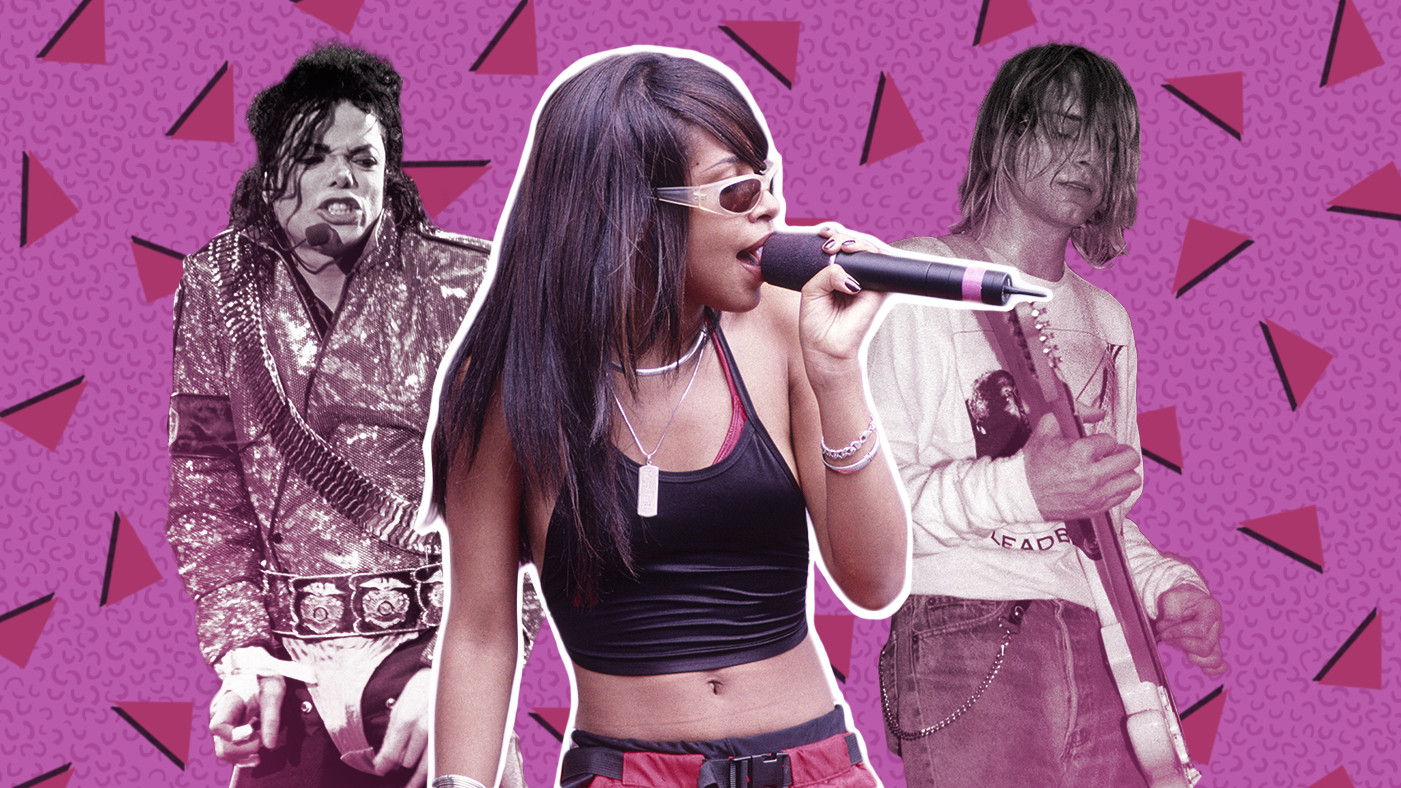 New Radicals You Get What You Give best nineties songs
New Radicals You Get What You Give best nineties songs
New Radicals are the quintessential one-hit wonder, gifting the world the gloriously anthemic “You Get What You Give.” This prom-ready track, complete with its bucket-hat-wearing frontman and mall-riot-themed music video, delivered a burst of optimistic energy and even included playful jabs at Beck, Hanson, Courtney Love, and Marilyn Manson. And then, just as quickly as they arrived, New Radicals vanished. Though frontman Gregg Alexander resurfaced years later, earning an Oscar nomination for Begin Again in 2015, the bucket hat sadly remained absent from the red carpet.
Portishead, “Glory Box” (1994)
Portishead’s “Glory Box” is the epitome of elegant trip-hop melancholy. Beth Gibbons’s haunting vocals, dripping with sorrow and vulnerability, are perfectly paired with a timeless sample of Isaac Hayes’s cheeba-infused funk from the Seventies. This track became a defining sound of the trip-hop genre and experienced a resurgence in popularity in 2015 when Alessia Cara, who wasn’t even born when “Glory Box” was released, brought the sample back to the radio in her own hit.
Sheryl Crow, “If It Makes You Happy” (1996)
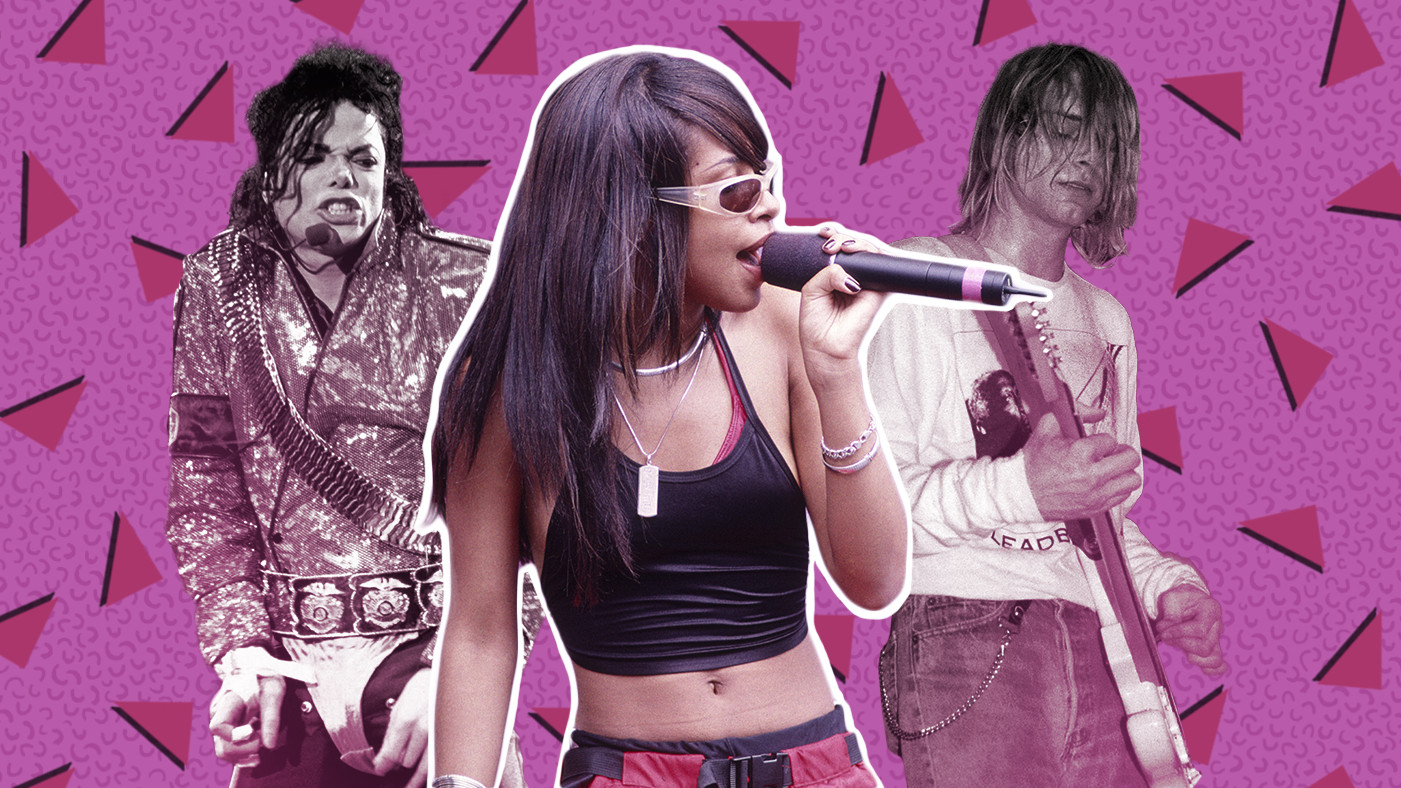 Sheryl Crow If It Makes You Happy best nineties songs
Sheryl Crow If It Makes You Happy best nineties songs
Sheryl Crow captured the slacker spirit of the Nineties with “If It Makes You Happy.” The line about “scraping the mold off the bread” perfectly encapsulates the decade’s laid-back, sometimes apathetic, attitude towards rock and roll. This song became an anthem for a generation embracing a sense of comfortable, stoner-esque torpor.
En Vogue, “Don’t Let Go (Love)” (1996)
En Vogue, the powerhouse vocal group, delivered their steamiest slow jam with “Don’t Let Go (Love).” This track is a masterclass in soulful harmonies and sensual delivery, exploring the complexities of love, heartbreak, and emotional vulnerability. The song’s peak moment arrives with the unforgettable line: “If I could wear your clothes… I’d pretend I was you… and looooose controoool!”
Helium, “XXX” (1994)
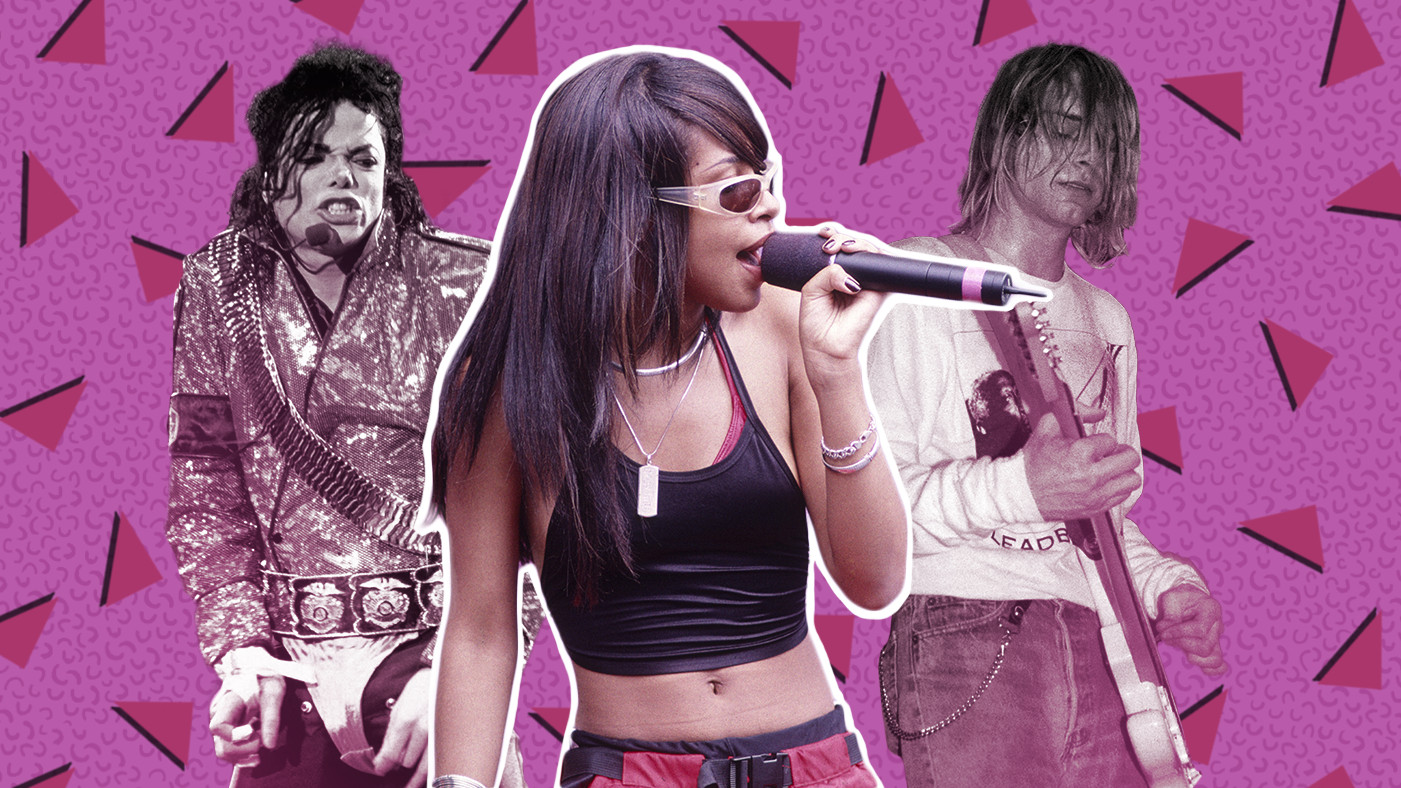 Helium XXX best nineties songs
Helium XXX best nineties songs
Mary Timony, a guitar virtuoso who later formed Wild Flag and Ex Hex, showcased her sharp wit and musical prowess in Helium’s “XXX.” This seemingly sweet ballad takes a dark and humorous turn, with Timony coolly warning potential harassers of deadly consequences, delivered with deadpan sarcasm. Her guitar work underscores the threat, becoming the instrument of retribution as she sings her hilariously dismissive kiss-off lines: “My heart is a cab…your love is a fad…and you’re a draaag!”
Foxy Brown With Jay Z, “I’ll Be” (1996)
“I’ll Be,” a collaboration between Foxy Brown and Jay-Z, marked a significant moment for both artists. Foxy Brown confidently declares, “I’m 2 live, nasty as I wanna be,” establishing her bold and provocative persona. Jay-Z, fresh off the release of Reasonable Doubt, playfully counters with “Don’t shake your sassy ass in front of me,” showcasing his burgeoning mastery of the rap game. This hit was just one of many early successes that hinted at Jay-Z’s enduring reign at the top of hip-hop for decades to come.
Underworld, “Born Slippy .Nuxx” (1996)
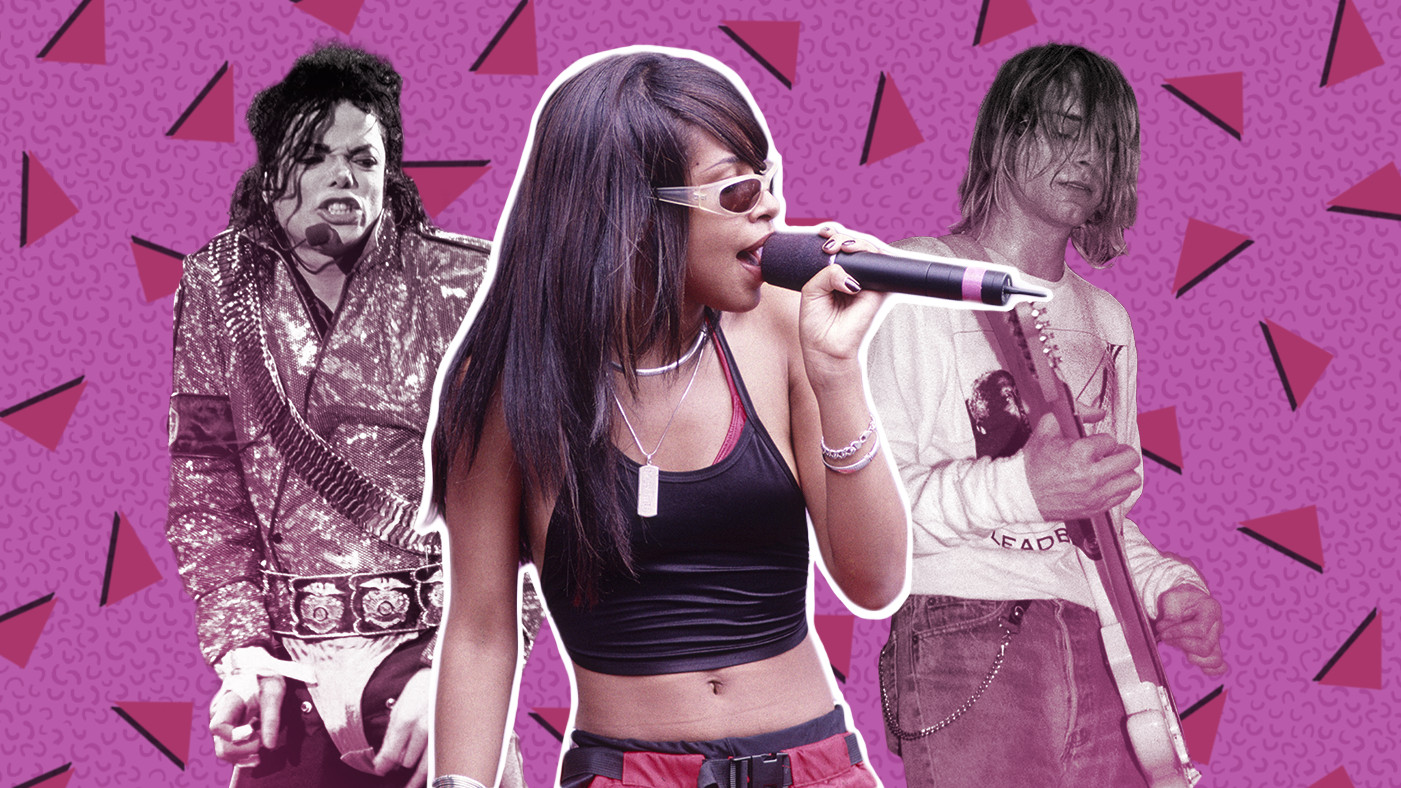 Underworld Born Slippy Nuxx best nineties songs
Underworld Born Slippy Nuxx best nineties songs
Underworld’s “Born Slippy .Nuxx” is an explosion of techno energy, a sensory assault that unexpectedly catapulted into mainstream popularity after its inclusion in the film Trainspotting. The iconic “lager lager lager lager” chant became instantly recognizable, though the track’s frenetic energy and complex soundscapes suggest that lager might be one of the milder substances involved in its creation. This song became synonymous with the energy and intensity of 90s rave culture.
Sir Mix-A-Lot, “Baby Got Back” (1992)
“Baby Got Back” by Sir Mix-A-Lot is, of course, an undeniable cultural phenomenon. This unapologetically pro-butt anthem became a global sensation, with practically everyone in the English-speaking world able to quote its most memorable lines. The song’s playful humor and body-positive message resonated widely, challenging conventional beauty standards and celebrating diverse body types.
Fiona Apple, “Paper Bag” (1999)
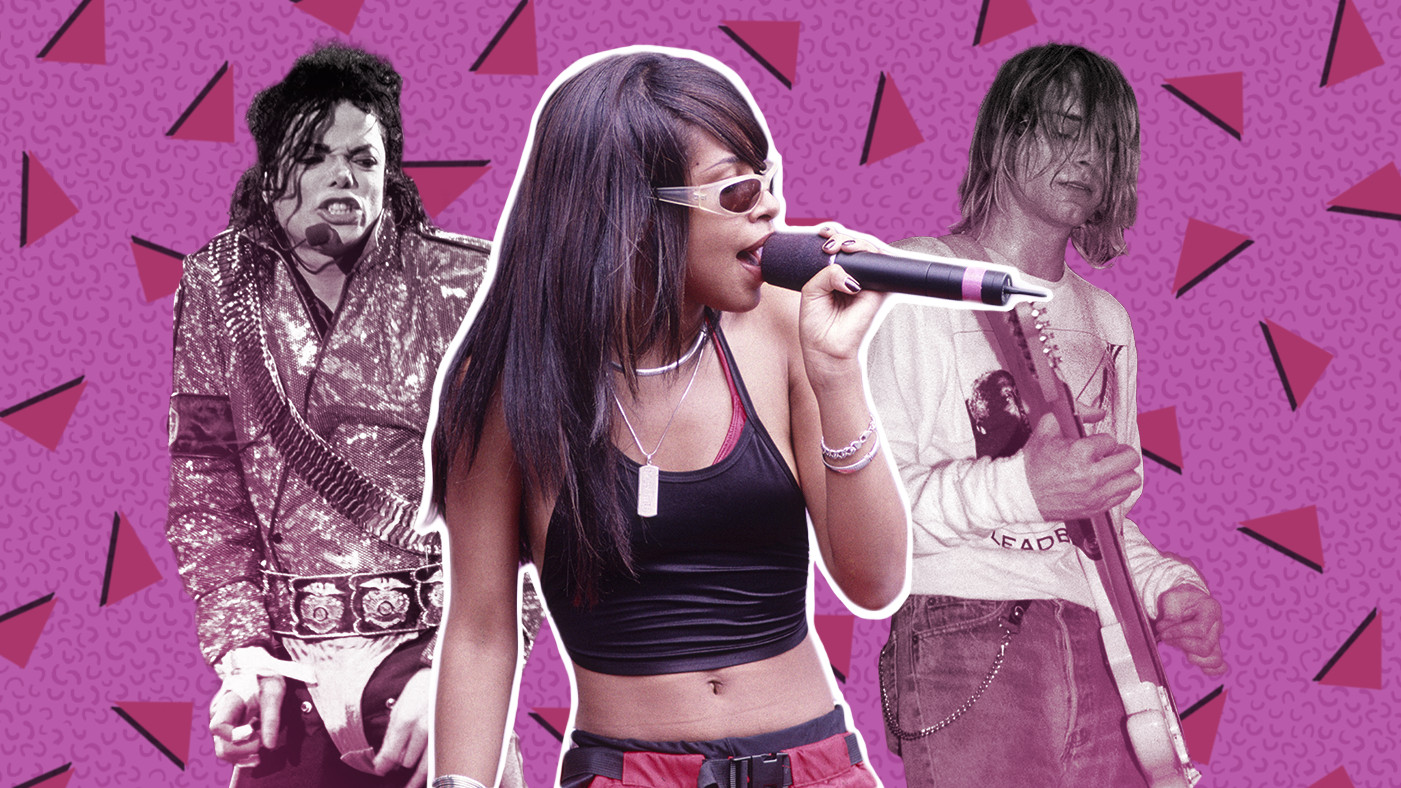 Fiona Apple Paper Bag best nineties songs
Fiona Apple Paper Bag best nineties songs
Fiona Apple’s “Paper Bag” is a poignant and insightful exploration of romantic disillusionment. With her signature raw honesty and evocative vocals, Apple captures the sting of realizing a romantic ideal is merely an illusion. The simple yet powerful lyric, “She thought he was a man, but he was just a little boy,” encapsulates the song’s central theme of unmet expectations and the painful realities of love.
Weezer, “Pink Triangle” (1996)
Years before the term “overshare” entered common parlance, Weezer’s Rivers Cuomo embraced the concept wholeheartedly with “Pink Triangle.” This love song, delivered with a dose of self-deprecating humor, is the epitome of “straight-dude dumbitude,” exploring themes of awkwardness, missed signals, and romantic missteps. While Cuomo might have seen himself on par with Nirvana in his mind, the song playfully acknowledges the gap between aspiration and reality.
Daft Punk, “Around the World” (1997)
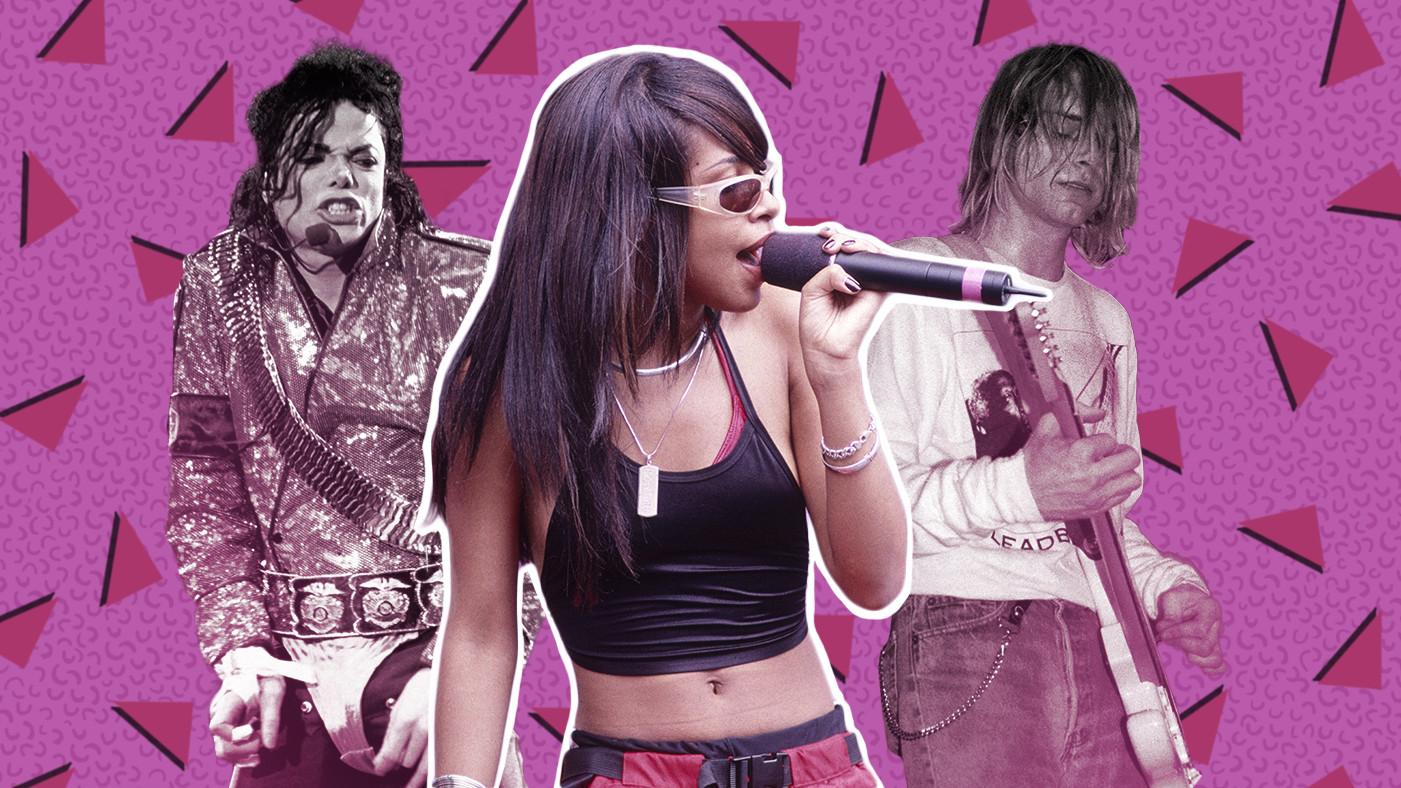 Daft Punk Around the World best nineties songs
Daft Punk Around the World best nineties songs
Daft Punk, the enigmatic French electronic duo, took listeners on a sonic journey “Around the World” with their minimalist yet infectious track. Built upon a Chic “Good Times” bassline, filtered and transformed, the song became a defining sound of filter house and spawned countless imitators. The robotic duo’s innovative approach and futuristic soundscapes solidified their place as pioneers of electronic music in the 90s and beyond.
Natalie Imbruglia, “Torn” (1998)
“Torn” by Natalie Imbruglia achieved a level of karaoke ubiquity that few songs ever reach. When it comes to karaoke anthems, 1998 remains a golden year, and “Torn” was at the forefront. This tear-jerking ballad, despite Imbruglia’s own high-profile romances, continues to resonate with its themes of heartbreak and emotional vulnerability. It remains a go-to karaoke choice for those seeking to unleash their inner angst.
Harvey Danger, “Flagpole Sitta” (1998)
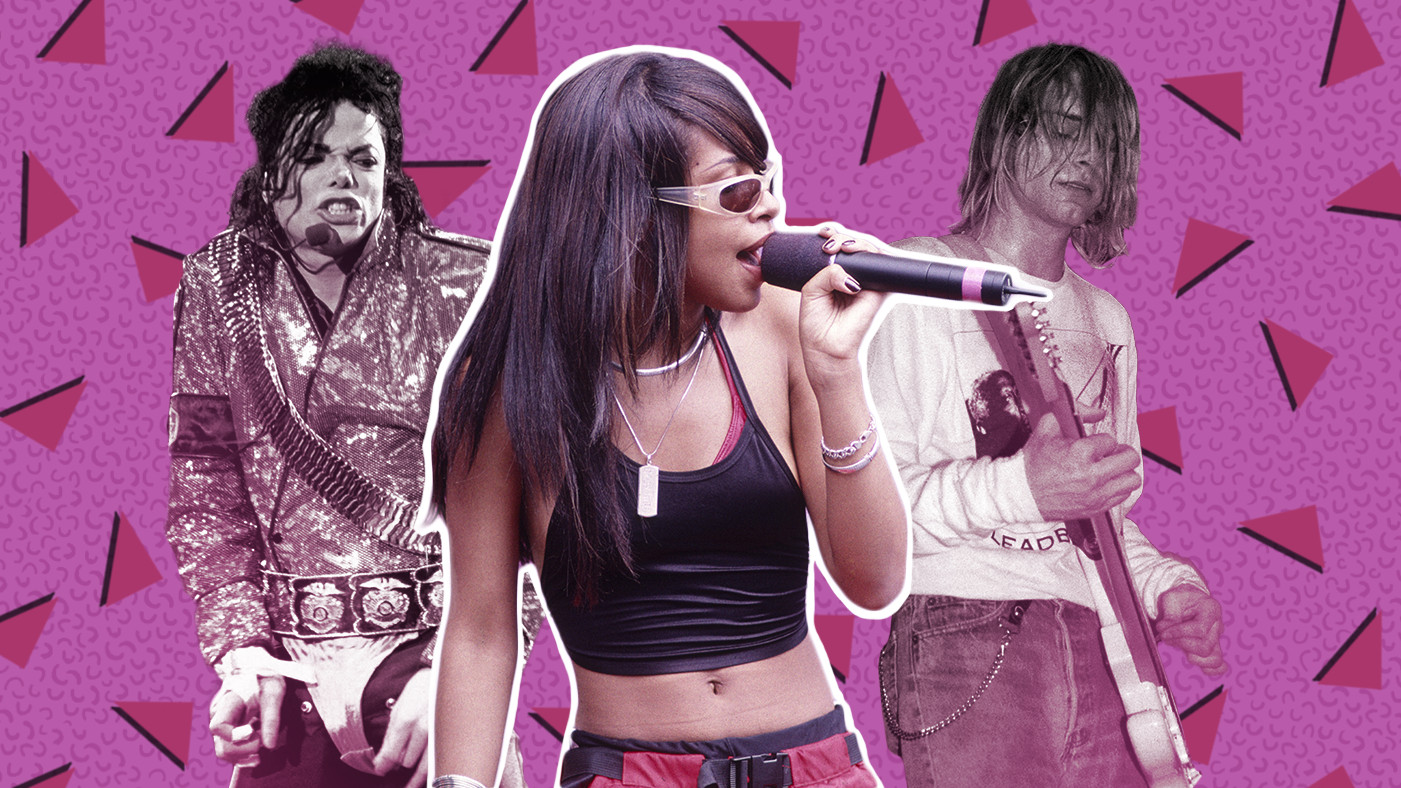 Harvey Danger Flagpole Sitta best nineties songs
Harvey Danger Flagpole Sitta best nineties songs
Like “Torn,” Harvey Danger’s “Flagpole Sitta” also holds a special place in the karaoke canon. The lyrics, “I wanna publish zines and rage against machines,” perfectly encapsulate the counter-cultural ethos of the 90s. The line “I don’t even own a TV” became a tongue-in-cheek marker of hipster identity, a sentiment that faded as the decade drew to a close. “Flagpole Sitta” remains a wry and insightful snapshot of 90s alternative culture.
Aaliyah, “Are You That Somebody” (1998)
“Are You That Somebody” by Aaliyah showcases Timbaland’s groundbreaking and avant-garde production style. Despite the track’s unconventional rhythms and experimental soundscapes, Aaliyah’s effortlessly cool vocals transform it into a bonafide pop hit. Her smooth delivery and understated sensuality perfectly complement Timbaland’s innovative beats, creating a track that is both experimental and irresistibly catchy.
Oasis, “Wonderwall” (1995)
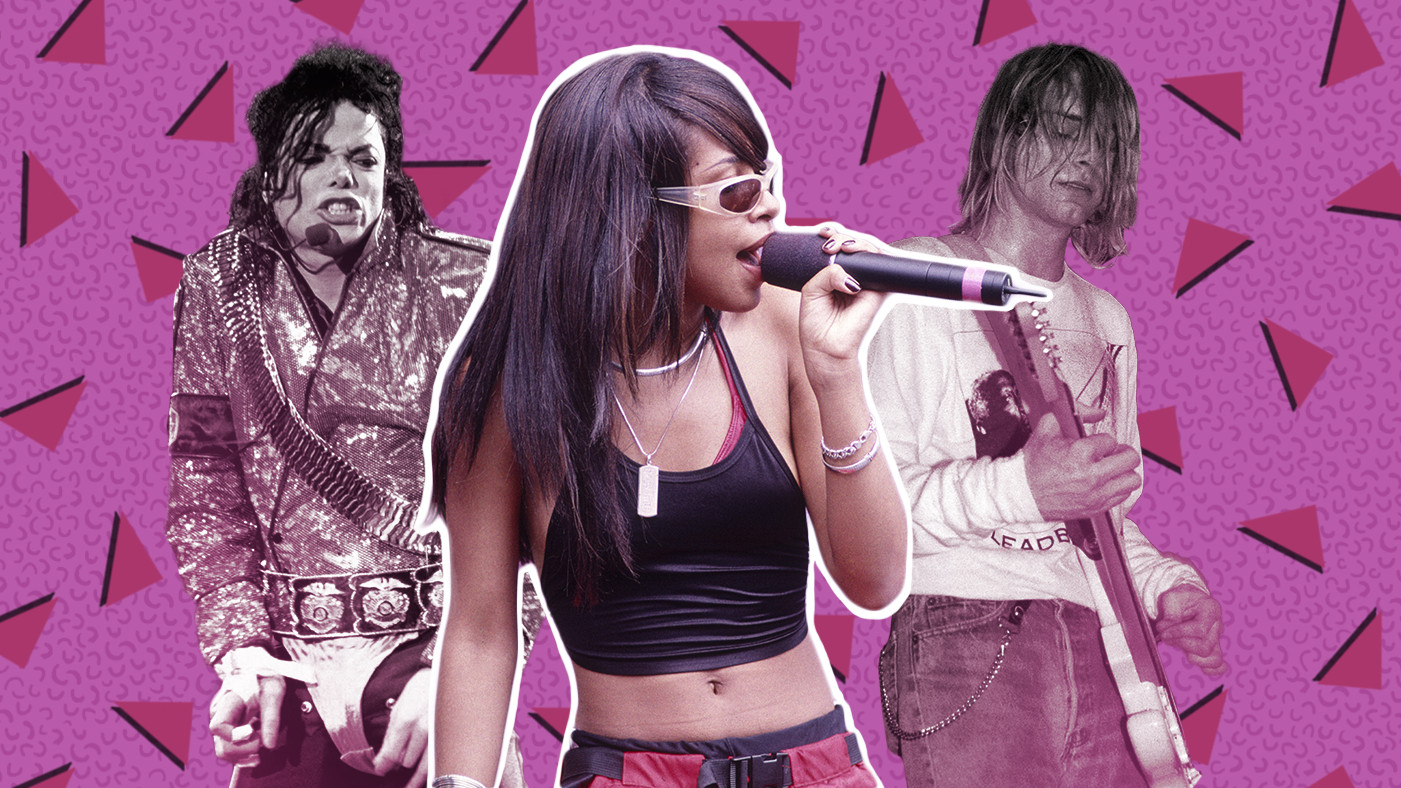 Oasis Wonderwall best nineties songs
Oasis Wonderwall best nineties songs
Noel Gallagher himself confessed to not knowing the meaning of “Wonderwall,” and truth be told, neither did anyone else. Yet, the ambiguity of the lyrics did little to diminish the song’s massive appeal. “Wonderwall” became a global singalong anthem, capable of transforming any space into a raucous, out-of-tune pub. Its enduring popularity lies in its anthemic quality and universal themes of hope and connection, even if the “wonderwall” itself remains undefined.
Mobb Deep, “Shook Ones Pt. II” (1995)
Mobb Deep’s “Shook Ones Pt. II” is a hip-hop masterpiece, often compared to the Rolling Stones’ “Gimme Shelter” for its raw and unflinching portrayal of urban reality. Prodigy and Havoc, the Queensbridge duo, deliver a stark report from a brutal urban landscape where vulnerability is a fatal flaw. The chilling declaration, “there ain’t no such thing as halfway crooks,” encapsulates the song’s uncompromising depiction of street life. Mobb Deep were among the grittiest and most authentic voices of the mid-90s East Coast hip-hop scene, and “Shook Ones Pt. II” remains as powerful and unsettling as ever.
Smashing Pumpkins, “1979” (1995)
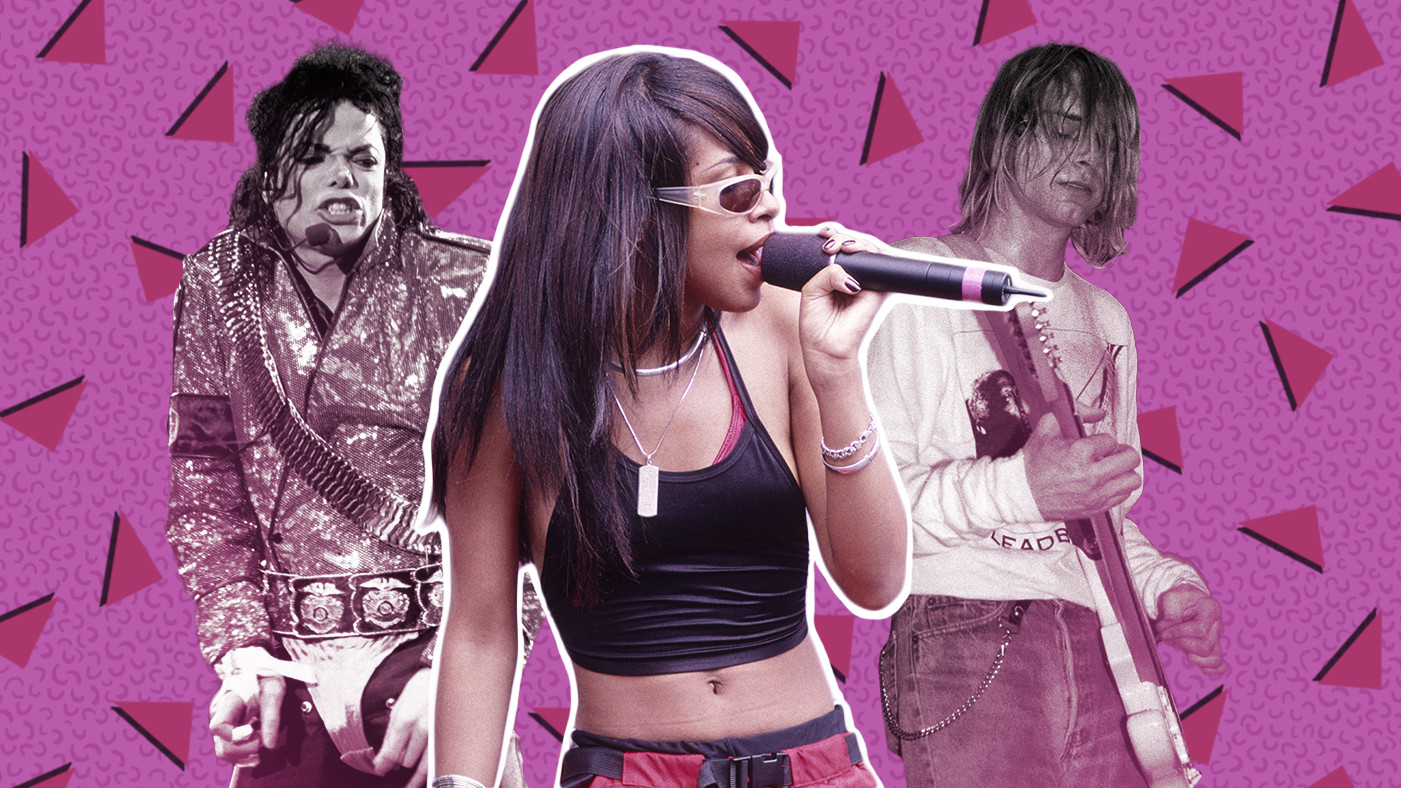 Smashing Pumpkins 1979 best nineties songs
Smashing Pumpkins 1979 best nineties songs
Billy Corgan’s “1979” is a nostalgic ode to the bittersweet pangs of adolescence, specifically a generic Midwestern summer. Built around James Iha’s shimmering guitar riff, the song transcends typical Corgan-phobe criticism, becoming a universally admired track even Pavement covered. “Faster than the speed of sound, faster than we thought we’d go,” the lyrics evoke a sense of youthful yearning and the fleeting nature of time.
Beck, “Loser” (1993)
Beck emerged as the poet of his generation, a label applied generously to many artists in the 90s. “Loser” was his breakthrough, a genre-bending track that blended blues licks, beatboxing, and even a leaf blower, accompanied by a music video playfully riffing on George Lucas’s copyrights. The song’s ironic self-deprecation and genre-mashing approach perfectly captured the eclectic and anti-establishment spirit of the 90s alternative scene.
Whitney Houston Feat. Faith Evans and Kelly Price, “Heartbreak Hotel” (1998)
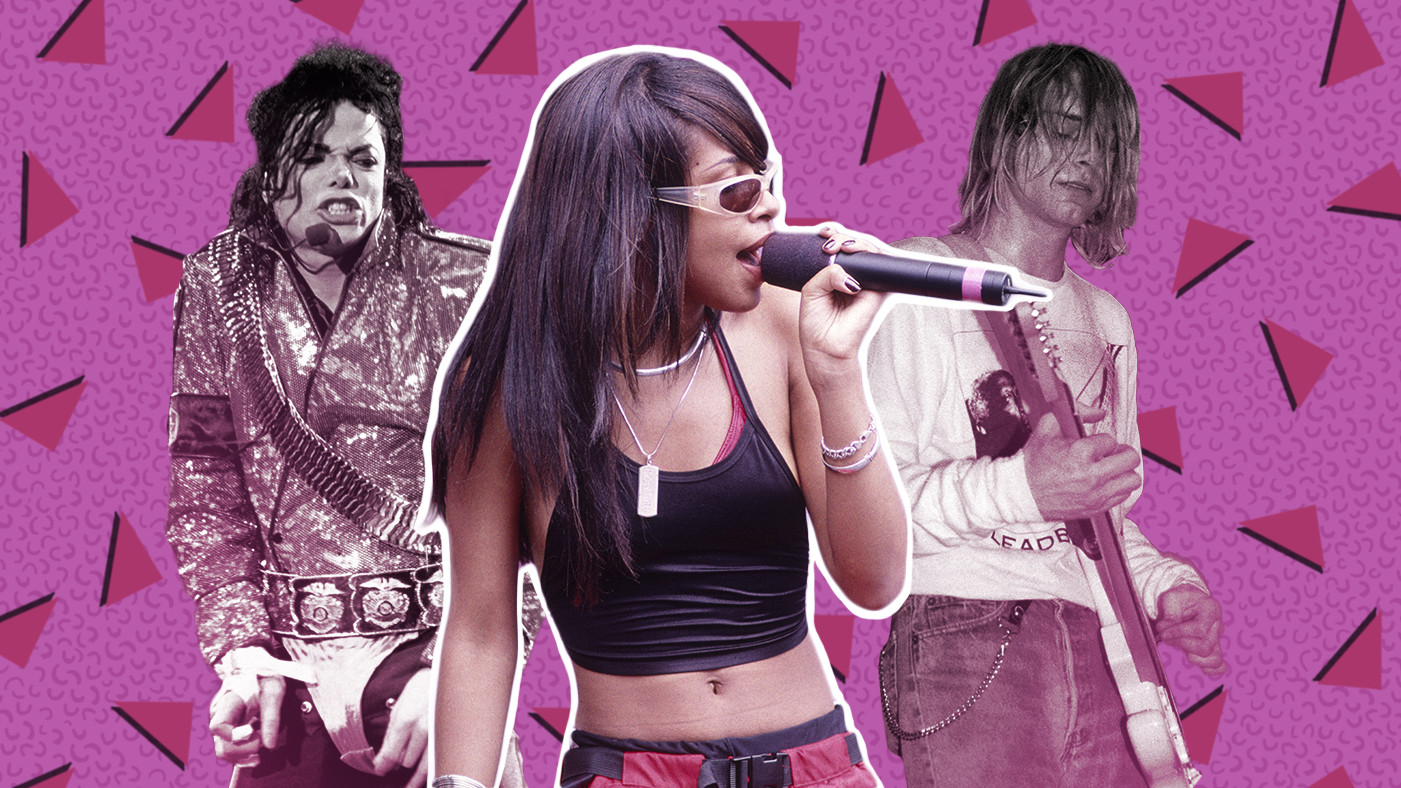 Whitney Houston Heartbreak Hotel best nineties songs
Whitney Houston Heartbreak Hotel best nineties songs
“Heartbreak Hotel,” featuring Faith Evans and Kelly Price, showcased Whitney Houston’s vocal prowess and her ability to convey raw emotion. The song is a kiss-off to a trifling lover, with Whitney’s voice building from delicate whispers to soaring high notes, delivering sweet revenge with every vocal run. At the time, it felt like the beginning of a new chapter for Whitney, a powerful declaration of independence. Tragically, it became an unintended foreshadowing of a story cut short.
Garbage, “Queer” (1995)
Garbage, fronted by Shirley Manson, delivered a distinctive blend of alternative rock and electronic textures. “Queer” perfectly showcases their sound, with Manson’s haunting vocals meeting Butch Vig’s signature production expertise. Whispering the provocative lines, “You can touch me if you want/But you can’t stop,” Manson’s voice is both alluring and unsettling, getting under your skin and lingering there.
Beastie Boys, “Sure Shot” (1994)
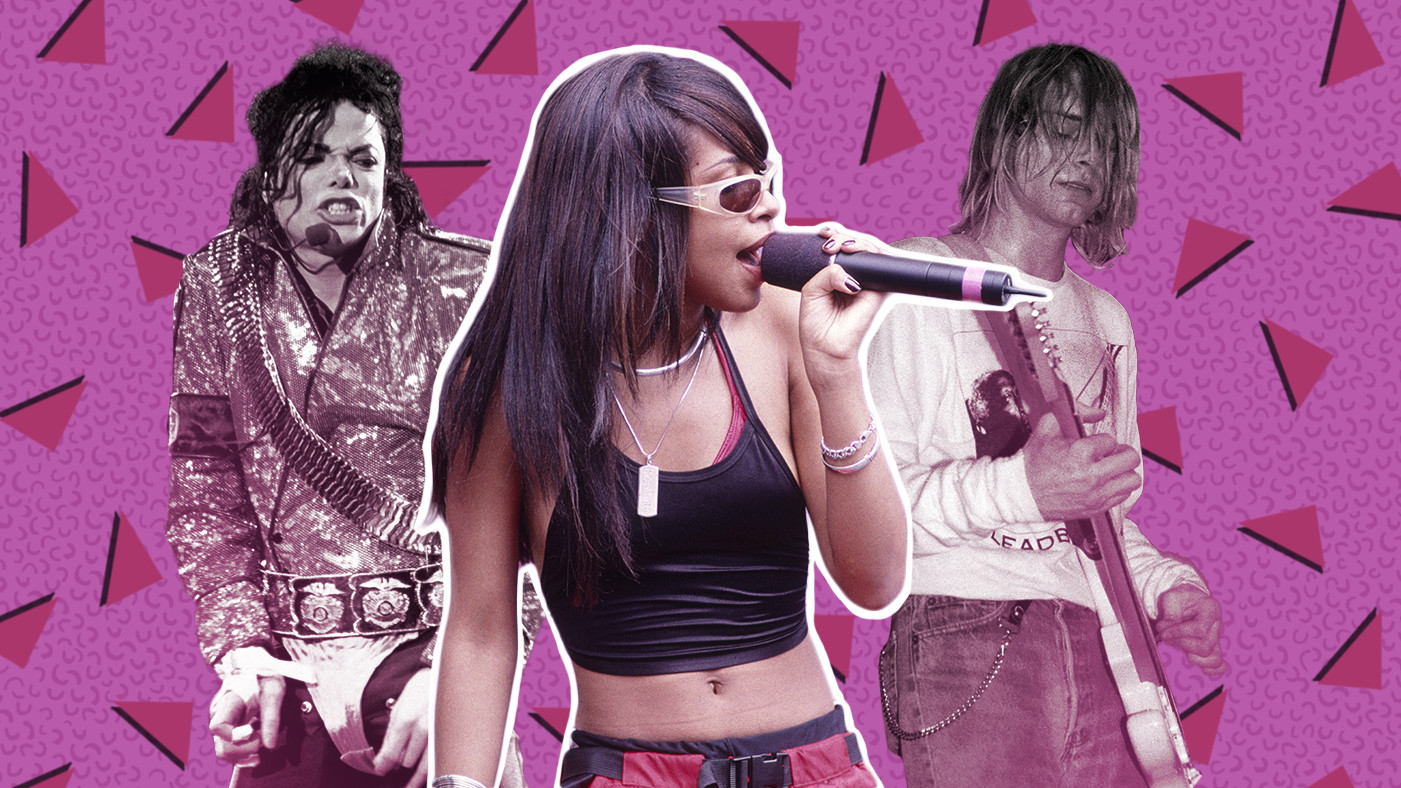 Beastie Boys Sure Shot best nineties songs
Beastie Boys Sure Shot best nineties songs
The Beastie Boys, masters of their craft, showcased their lyrical dexterity and playful energy in “Sure Shot.” Adam Yauch’s shout-out, “to all the mothers and the sisters and the wives and friends,” is a testament to their inclusive spirit. The track’s infectious groove and positive vibes cemented its place as a Beastie Boys classic, embodying their mantra: “Because you can’t, you won’t and you don’t stop.”
Sleater-Kinney, “Get Up” (1999)
Sleater-Kinney, the fierce trio from Portland, captured the feeling of isolation and defiance in “Get Up.” The song’s raw energy and powerful guitars, described as sounding “like a bucket of stars dumped into the universe,” perfectly encapsulate the band’s intense and uncompromising punk rock spirit. “Get Up” is an anthem for those who refuse to be silenced, even in moments of despair.
Outkast, “Rosa Parks” (1998)
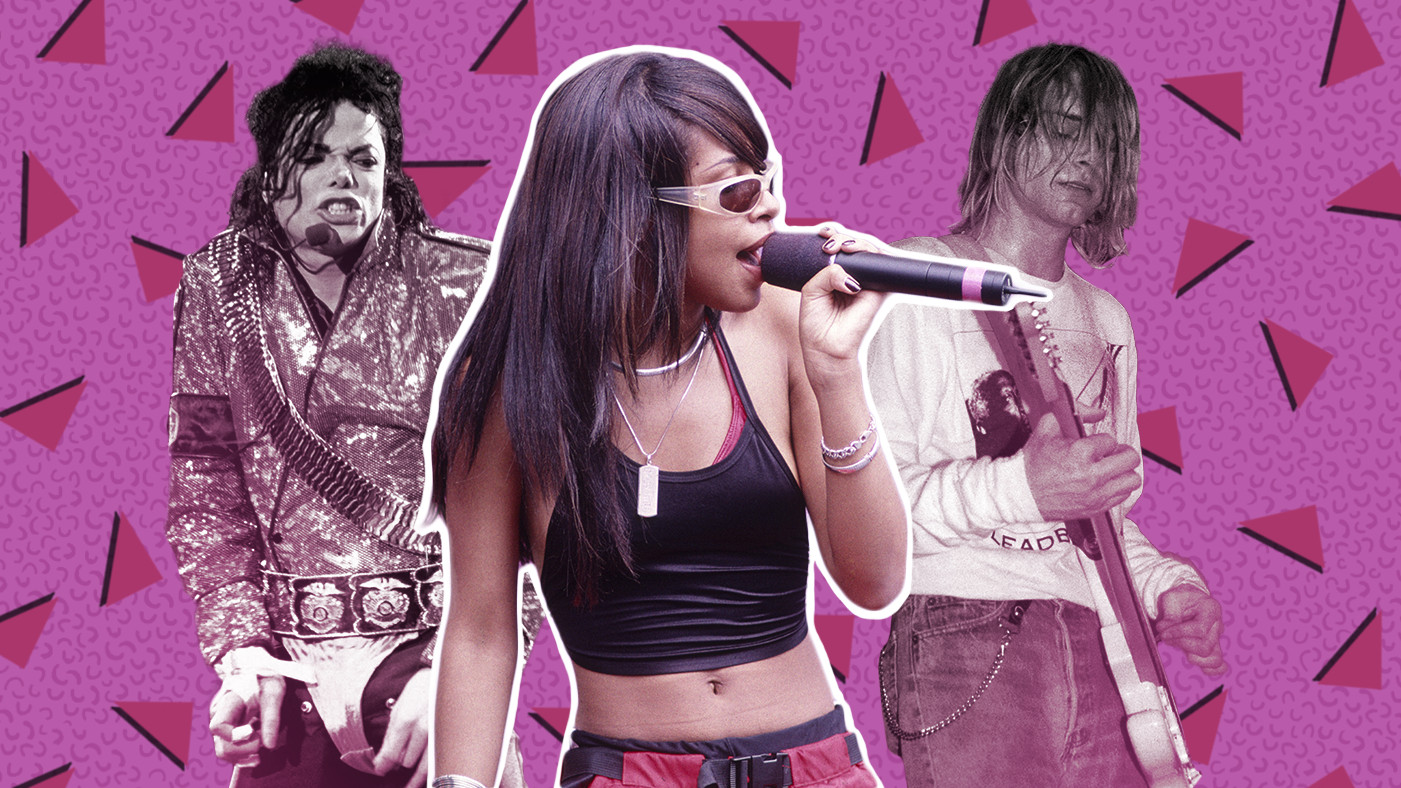 Outkast Rosa Parks best nineties songs
Outkast Rosa Parks best nineties songs
Outkast’s “Rosa Parks” is a genre-bending masterpiece, a Dirty South booty-shaking anthem that became a defining sound of the decade. Featuring the harmonica solo of the decade (sorry, Blues Traveler!), the track introduced much of the country to the innovative sounds brewing in Atlanta’s burgeoning hip-hop scene. It also marked the mainstream arrival of the word “crunk,” and to this day, “Rosa Parks” sounds as revolutionary and infectious as ever.
R.E.M. “Nightswimming” (1992)
“Nightswimming” by R.E.M. is a bittersweet piano-driven reverie, a song about holding onto precious memories before they fade away. Michael Stipe’s evocative lyrics and melancholic vocals paint a picture of skinny-dipping in the Georgia pines, a nostalgic reflection on simpler times. This track is a testament to R.E.M.’s ability to create emotionally resonant and timeless music, even amidst the changing musical landscape of the 90s.
Ol’ Dirty Bastard, “Brooklyn Zoo” (1995)
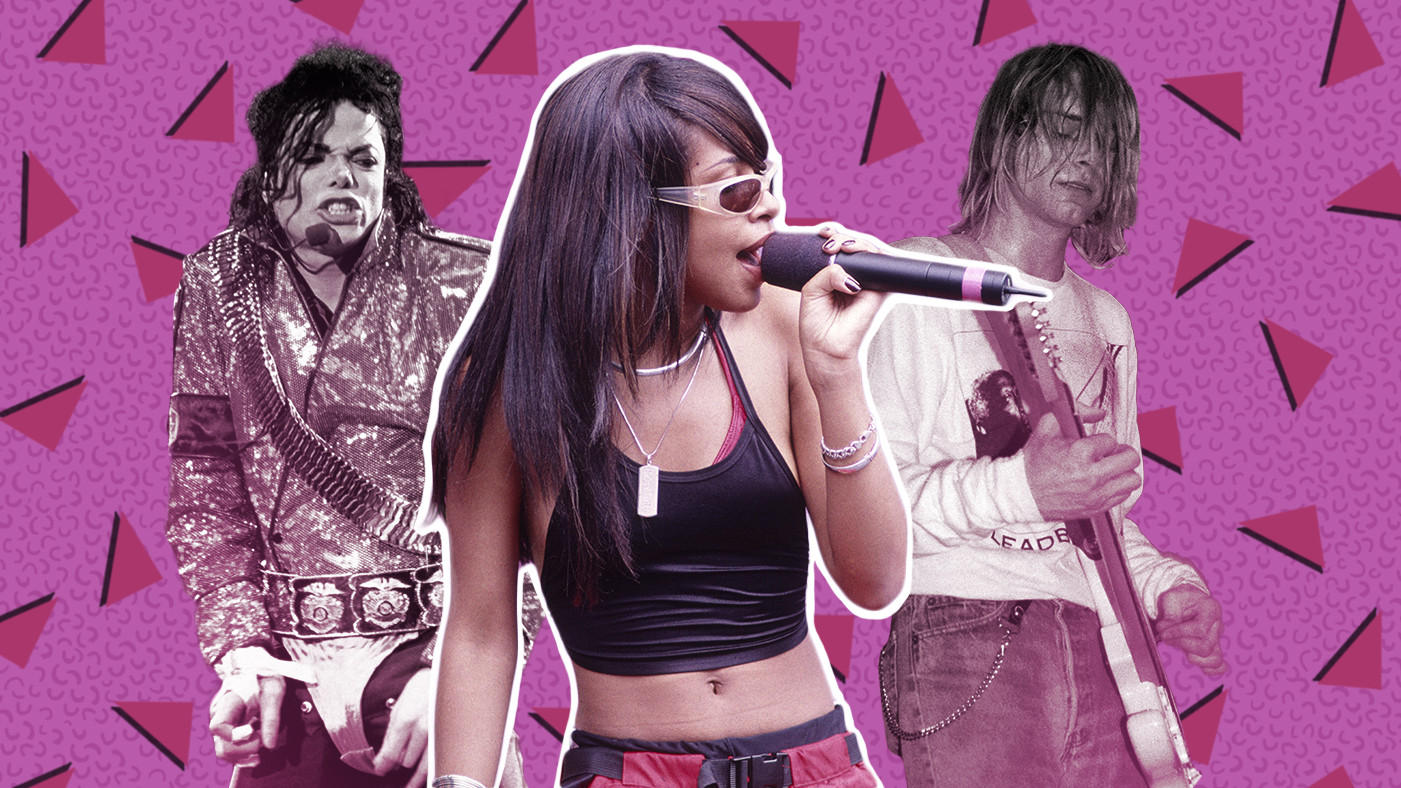 Ol’ Dirty Bastard Brooklyn Zoo best nineties songs
Ol’ Dirty Bastard Brooklyn Zoo best nineties songs
Ol’ Dirty Bastard, the most unpredictable and eccentric member of the Wu-Tang Clan, delivered a surprisingly radio-friendly hit with “Brooklyn Zoo.” While the Wu-Tang universe was often complex and album-oriented, “Brooklyn Zoo” showcased ODB’s unique charisma and humor in a more concise format. His wild energy and the RZA’s signature production, featuring broken piano keys, proved that Wu-Tang’s appeal could extend far beyond their core fanbase, reaching even “the children.”
The Breeders, “Cannonball” (1993)
The Breeders, formed by Pixies bassist Kim Deal and her twin sister Kelley, delivered a quirky and unforgettable hit with “Cannonball.” This freewheeling, shaggy-headed track became one of the most wonderfully weird radio hits of the 90s, or any decade. “Cannonball” showcased Kim Deal’s songwriting talent and the band’s unique blend of indie rock sensibilities and pop hooks.
Hole, “Doll Parts” (1994)
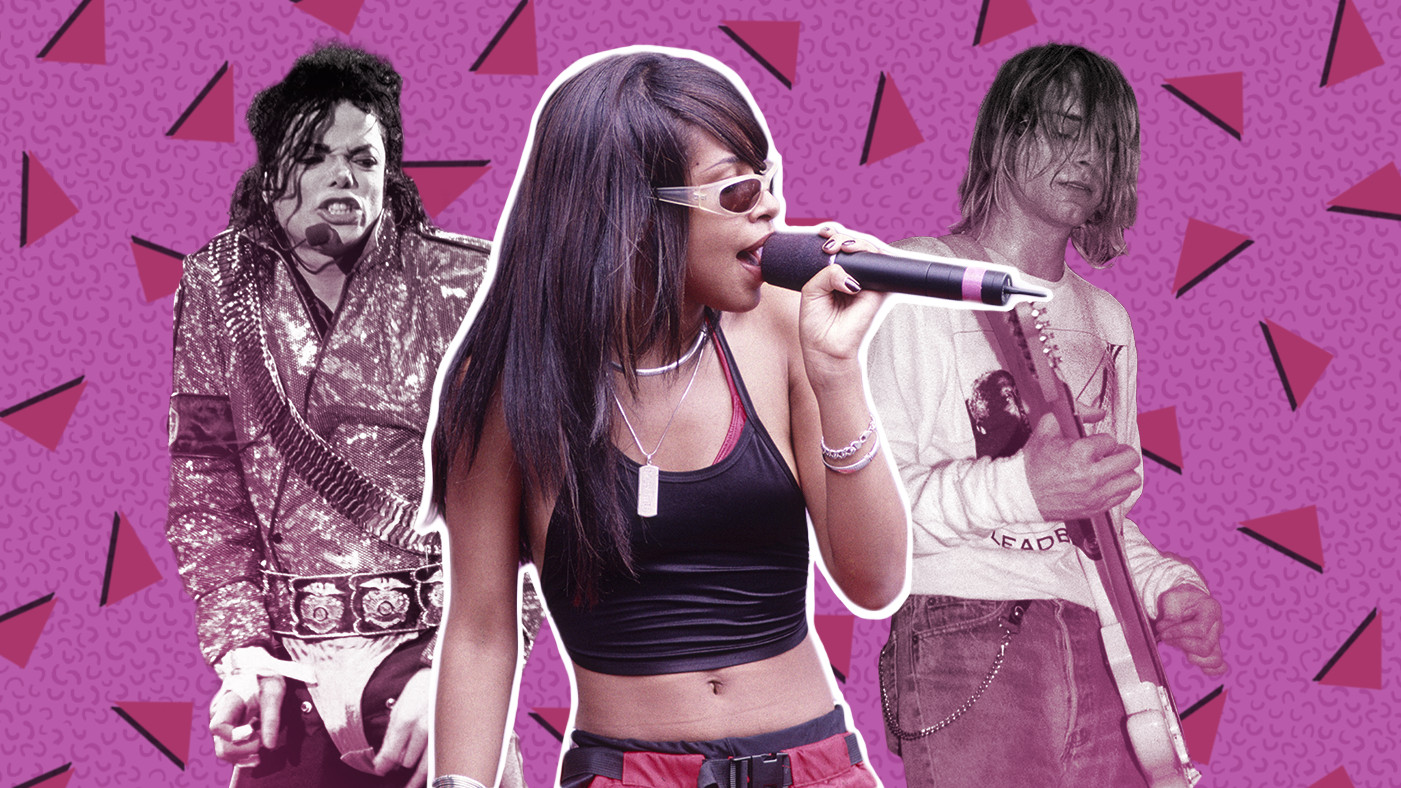 Hole Doll Parts best nineties songs
Hole Doll Parts best nineties songs
“Doll Parts” by Hole is arguably Courtney Love’s finest musical moment. The song’s raw vulnerability and emotional intensity resonate deeply, capturing a sense of pain and longing that is both personal and universal. As the description suggests, the song’s emotional weight and raw honesty make it a powerful and enduring piece of 90s rock.
TLC, “No Scrubs” (1999)
TLC, the iconic Atlanta trio, closed out the decade they dominated with the hilarious and fiercely independent anthem “No Scrubs.” This track directly addresses street harassment and dismisses undesirable suitors with sharp wit and unwavering confidence. “No Scrubs” became a cultural touchstone, empowering women and solidifying TLC’s status as queens of 90s R&B. Burn on, Left Eye.
Liz Phair, “Fuck and Run” (1993)
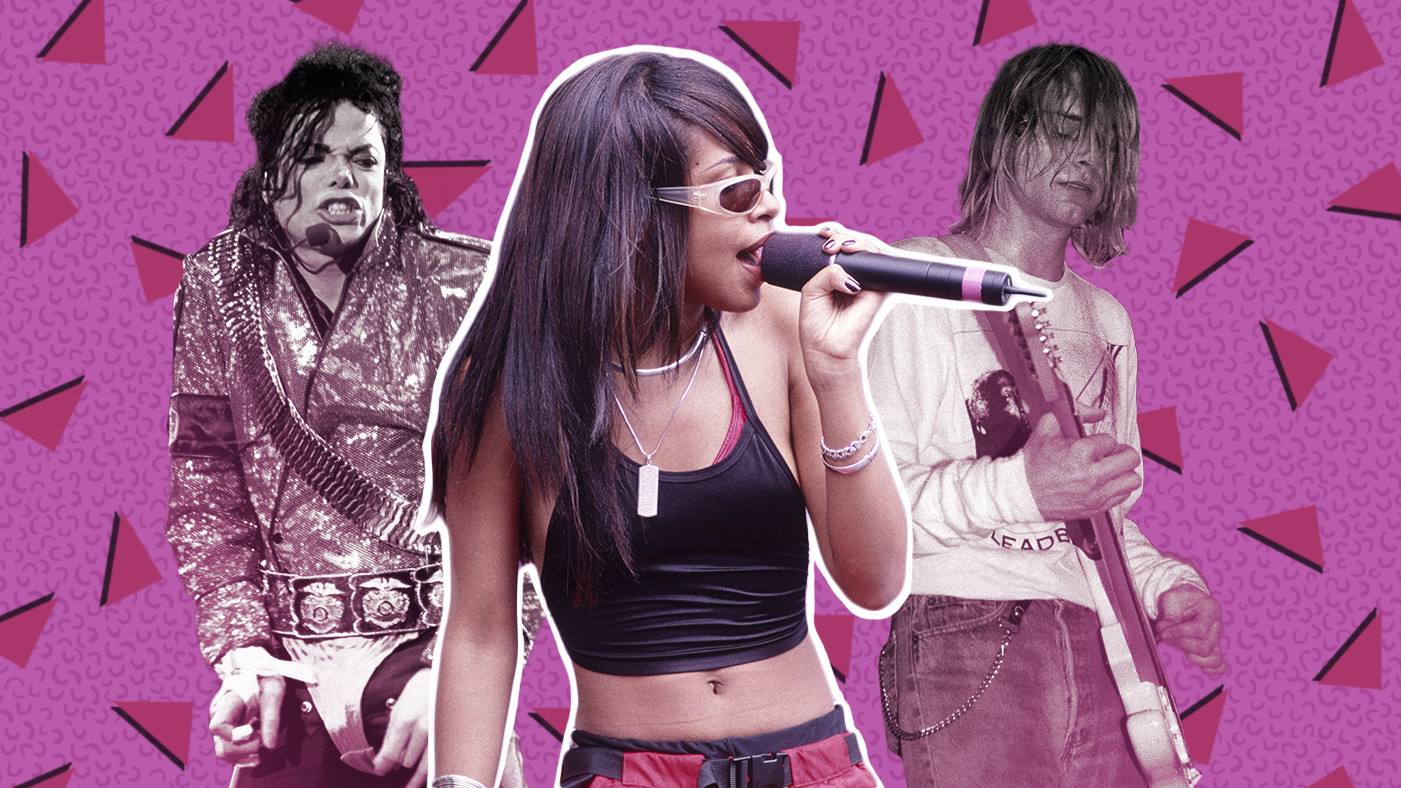 Liz Phair Fuck and Run best nineties songs
Liz Phair Fuck and Run best nineties songs
Liz Phair’s “Fuck and Run” captures the disillusionment and casual cruelty of fleeting relationships. With unflinching honesty and a plainspoken vocal delivery, Phair testifies about disposable encounters and the timelessly frustrating dynamic: “Boys only want love if it’s torture.” This track, from her groundbreaking album Exile in Guyville, remains relevant and relatable, speaking to enduring themes of love and heartbreak.
Pulp, “Common People” (1995)
Jarvis Cocker, the charismatic frontman of Pulp, embodies more soul and swagger in a single breath than many singers achieve in their entire careers. “Common People” is a Britpop masterpiece, a witty and insightful social commentary wrapped in a sexually charged and undeniably catchy package. Full of sex, sarcasm, and a touch of despair, “Common People” is quintessential Pulp and a defining song of the Britpop era. But mostly sex.
Missy “Misdemeanor” Elliott, ”The Rain (Supa Dupa Fly)” (1997)
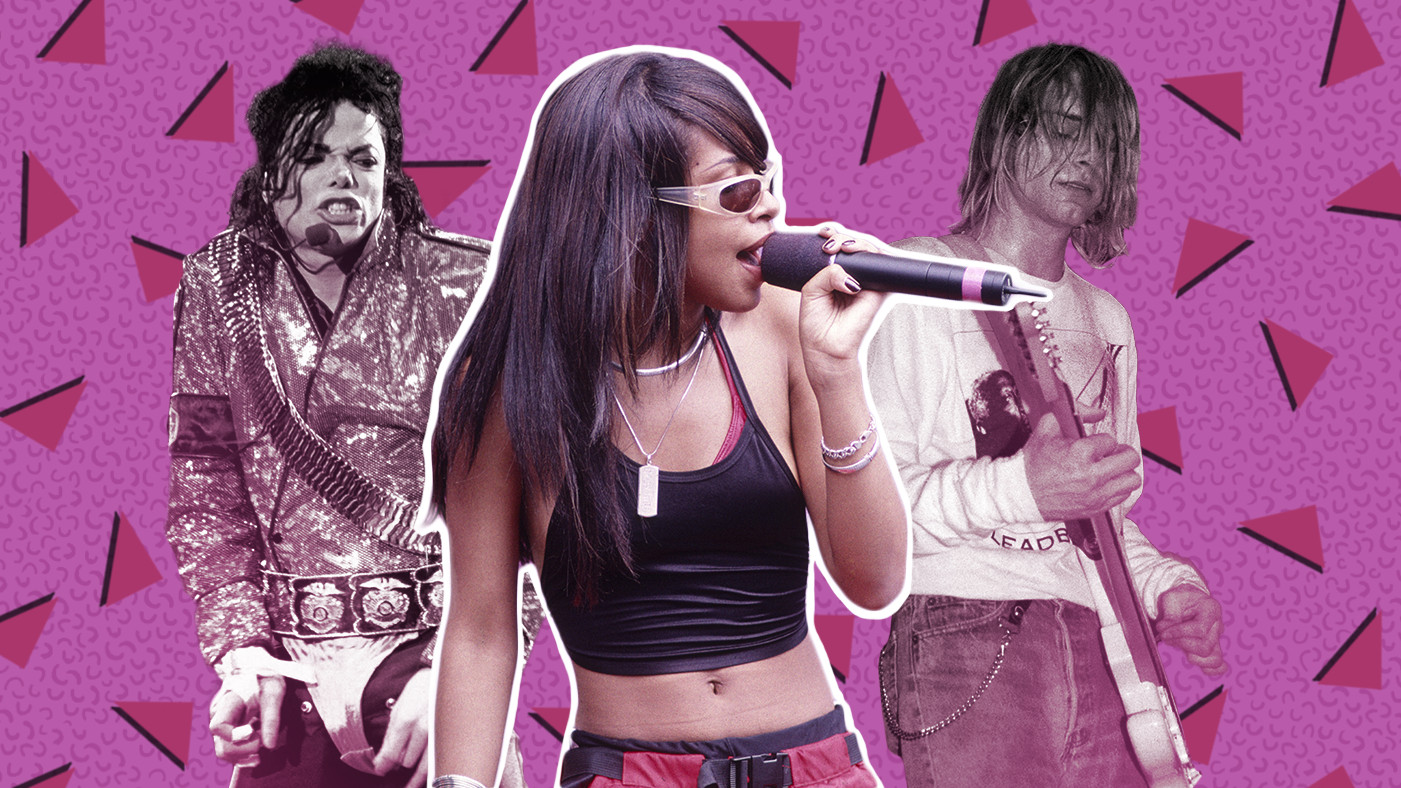 Missy Misdemeanor Elliott The Rain Supa Dupa Fly best nineties songs
Missy Misdemeanor Elliott The Rain Supa Dupa Fly best nineties songs
“The Rain (Supa Dupa Fly)” introduced the world to the dynamic duo of Missy Elliott and Timbaland, who together would redefine the sound of hip-hop and R&B in the late 90s and beyond. They masterfully warped a 70s R&B sample into a futuristic soundscape, evoking a long, humid Southern night filled with crickets and approaching storm clouds. Missy’s innovative flow and Timbaland’s groundbreaking production on “The Rain” marked the arrival of two true visionaries.
Pavement, “Gold Soundz” (1994)
Pavement’s “Gold Soundz” is a masterclass in concise and emotionally resonant songwriting. Packing the boyish heart-on-sleeve urgency of Pet Sounds into just three minutes, Stephen Malkmus and his slacker-rock crew waste not a single second. Every guitar twang, every mumbled lyric contributes to a perfectly crafted emotional surge. “Gold Soundz” is a testament to Pavement’s unique ability to create music that sounds both effortless and deeply affecting.
Dr. Dre and Snoop Dogg, “Nuthin’ but a ‘G’ Thang” (1992)
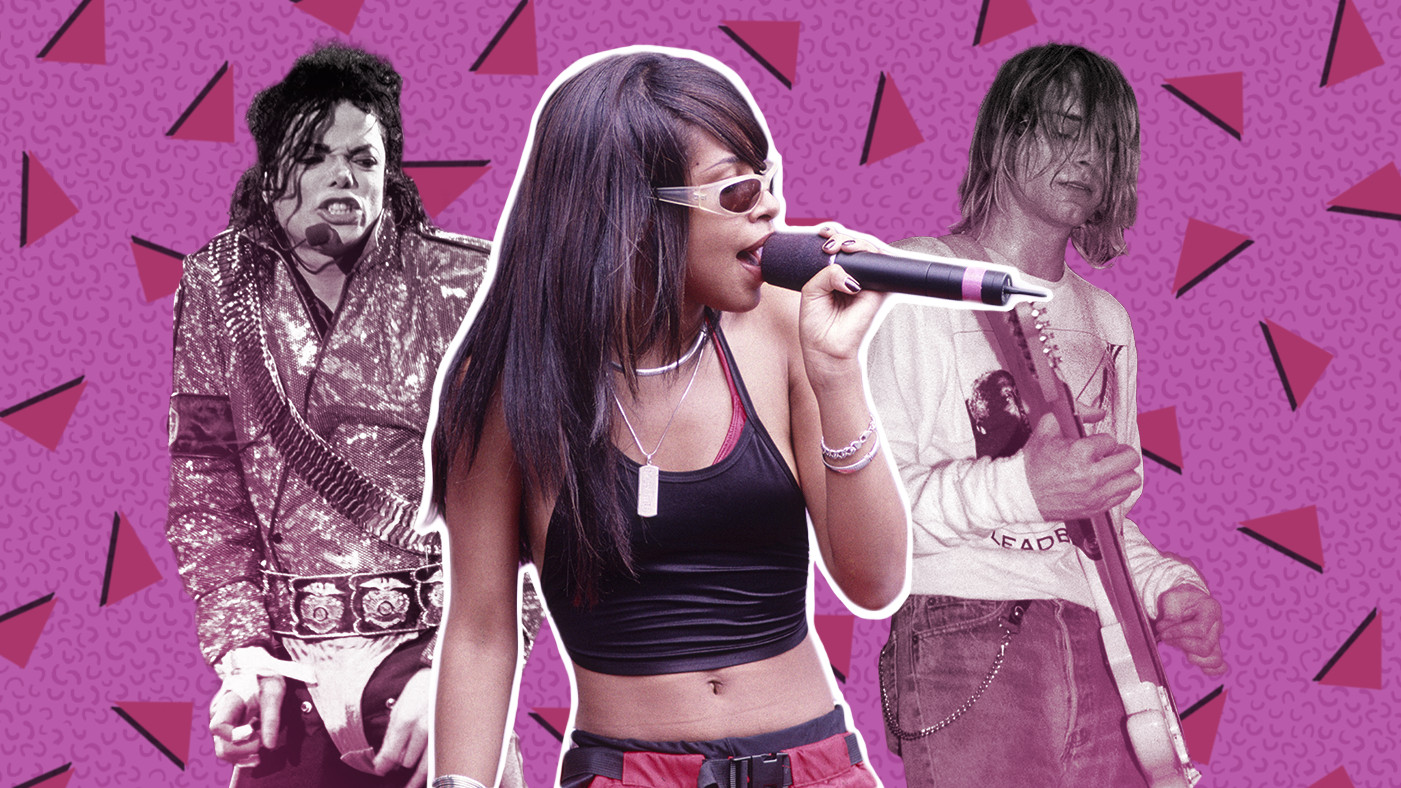 Dr Dre and Snoop Dogg Nuthin but a G Thang best nineties songs
Dr Dre and Snoop Dogg Nuthin but a G Thang best nineties songs
Dr. Dre, already a hip-hop legend from his N.W.A. days, returned stronger than ever with “Nuthin’ but a ‘G’ Thang,” with invaluable assistance from the then-newcomer Snoop Dogg. This track’s iconic G-funk groove, with its deep bassline and laid-back West Coast vibe, became an instant classic, making any car bounce and solidifying Dr. Dre and Snoop Dogg’s status as hip-hop royalty.
Bikini Kill, “Rebel Girl” (1993)
Bikini Kill, led by the ferocious Kathleen Hanna, and their token male guitarist, teamed up with Joan Jett to create “Rebel Girl.” This riot grrrl anthem, released as a seven-inch single, delivered on every radical promise punk rock ever made. “Rebel Girl” is a powerful and empowering anthem for the neighborhood girl with revolution in her spirit. It demonstrated that rock & roll could still possess political and emotional muscle, a concept that felt almost revolutionary in itself.
Notorious B.I.G. With Mase and Puff Daddy, “Mo Money Mo Problems” (1997)
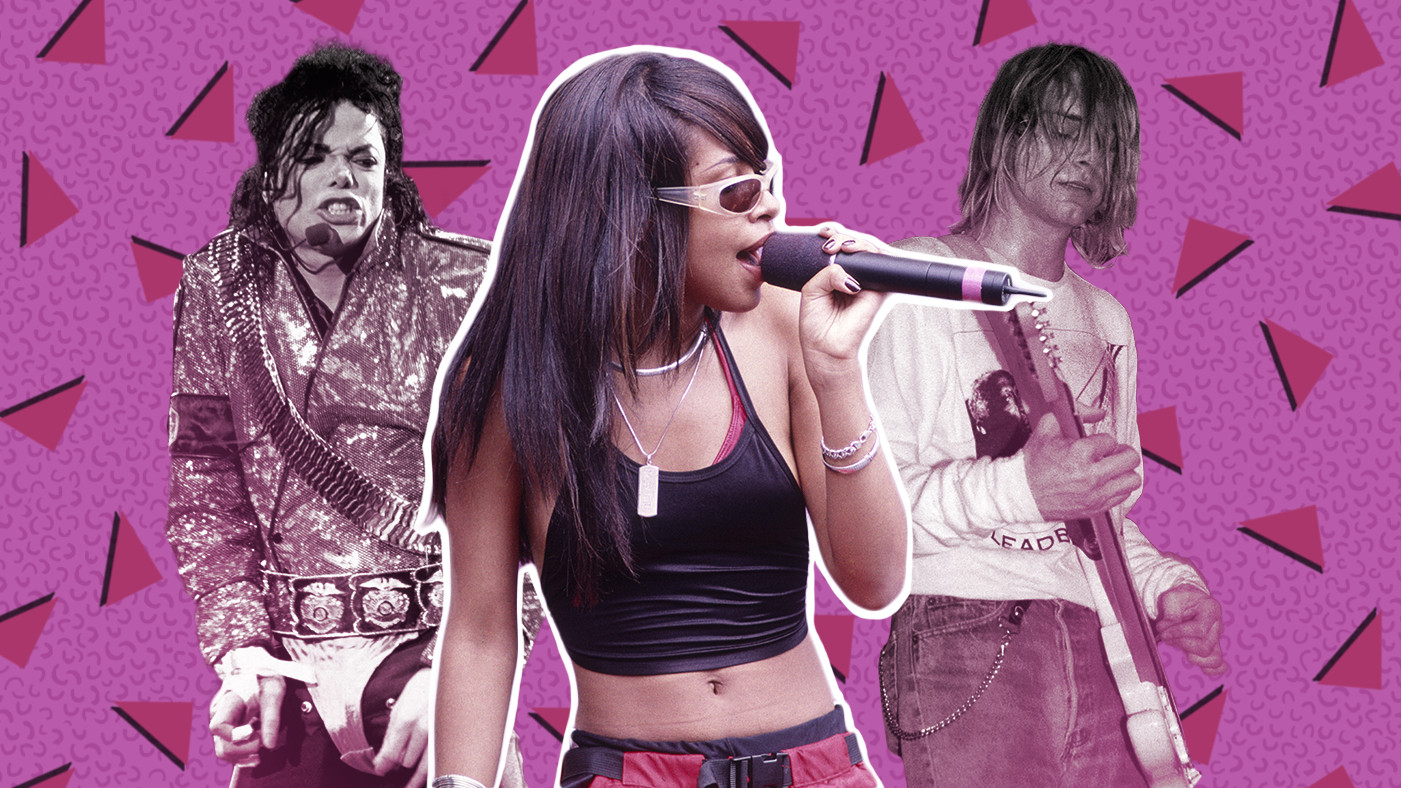 Notorious BIG Mo Money Mo Problems best nineties songs
Notorious BIG Mo Money Mo Problems best nineties songs
The Notorious B.I.G., the late and legendary rapper, possessed unparalleled charisma and vocal presence. Even his ad-libs and throat-clearing on “Mo Money Mo Problems” exude more soul than many rappers manage in entire verses. This track, tragically, became an accidental epitaph, reaching Number One posthumously and yet sounding impossibly full of life. The burning question remains: Did Mase ever get to see his name on a blimp?
Blackstreet, “No Diggity” (1996)
Blackstreet’s “No Diggity” is a utopian celebration of the best elements of American music. Teddy Riley, the mastermind behind the track, seamlessly blended doo-wop harmonies, Dr. Dre-inspired beats, old-school R&B influences, and a sample of acoustic blues guitar from Bill Withers. “No Diggity” envisioned a future where diverse musical styles could coexist and thrive, and we are indeed fortunate to be living in that future.
Nirvana, “Smells Like Teen Spirit” (1991)
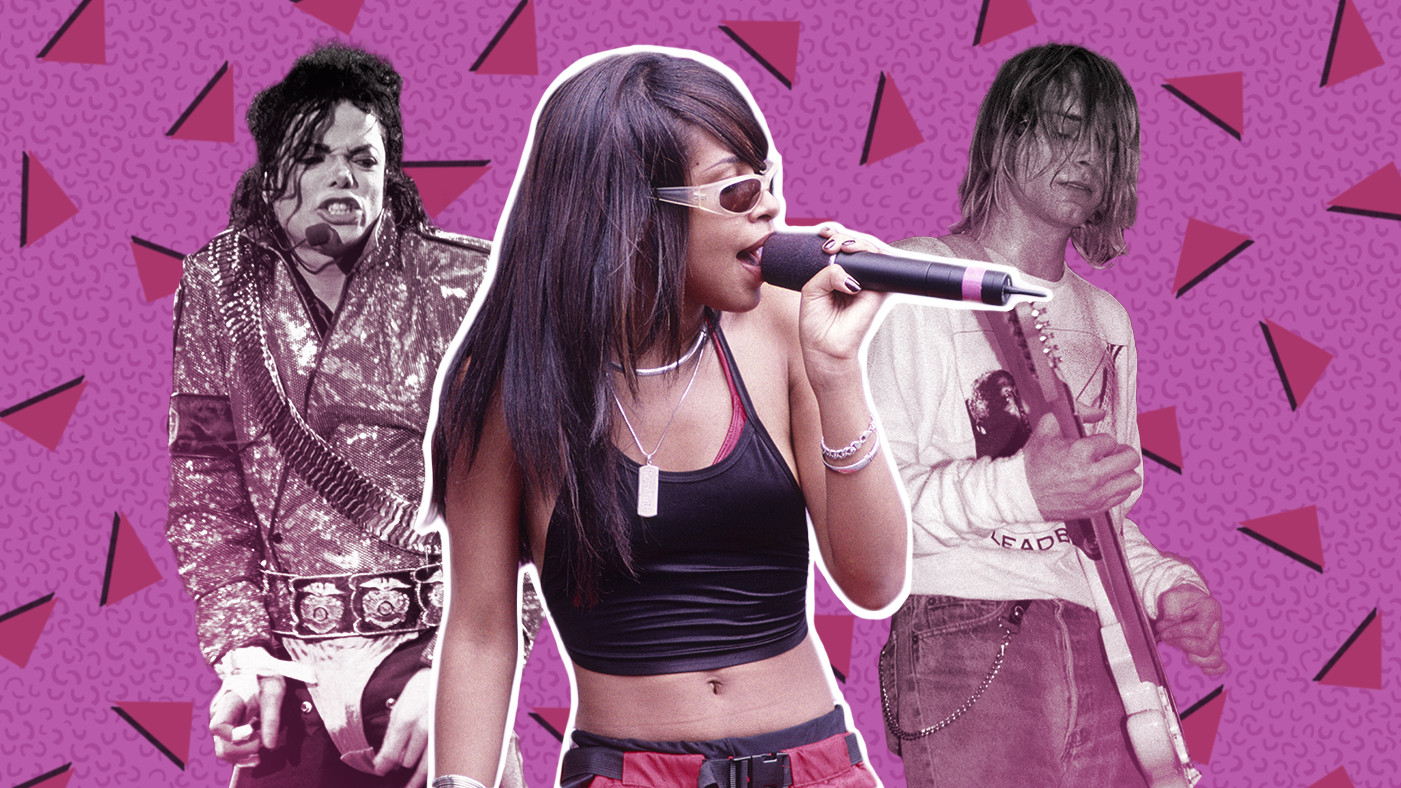 Nirvana Smells Like Teen Spirit best nineties songs
Nirvana Smells Like Teen Spirit best nineties songs
“Smells Like Teen Spirit” by Nirvana is the song that changed everything. It shattered established rules about music, proving how much raw emotion could be conveyed through simple chords and a deliberately unpolished guitar solo. This song kicked the future in the teeth, challenging complacency and demanding more than the status quo. “Smells Like Teen Spirit” was Kurt Cobain’s challenge to the audience, and after all these years, the challenge still resonates.

